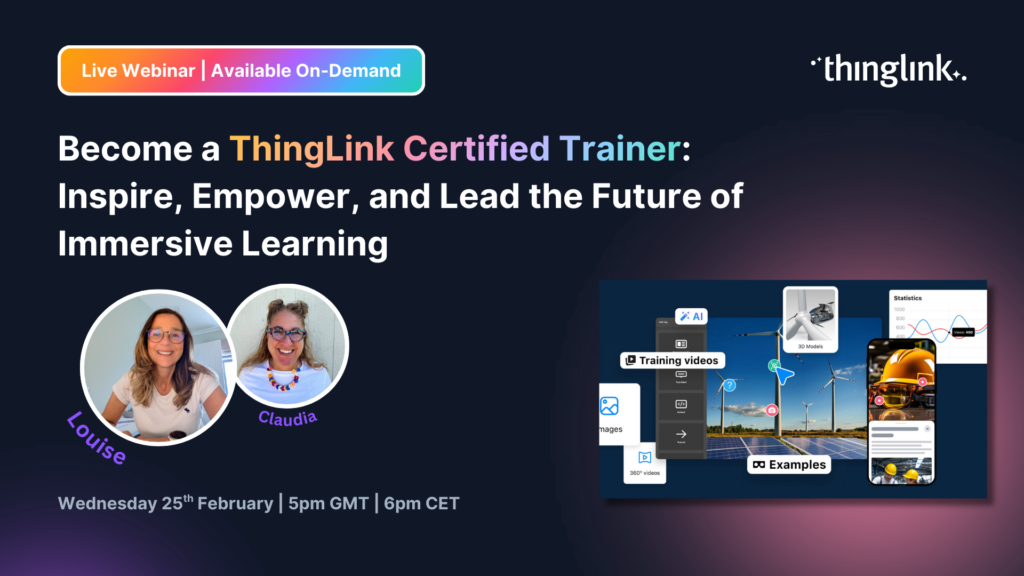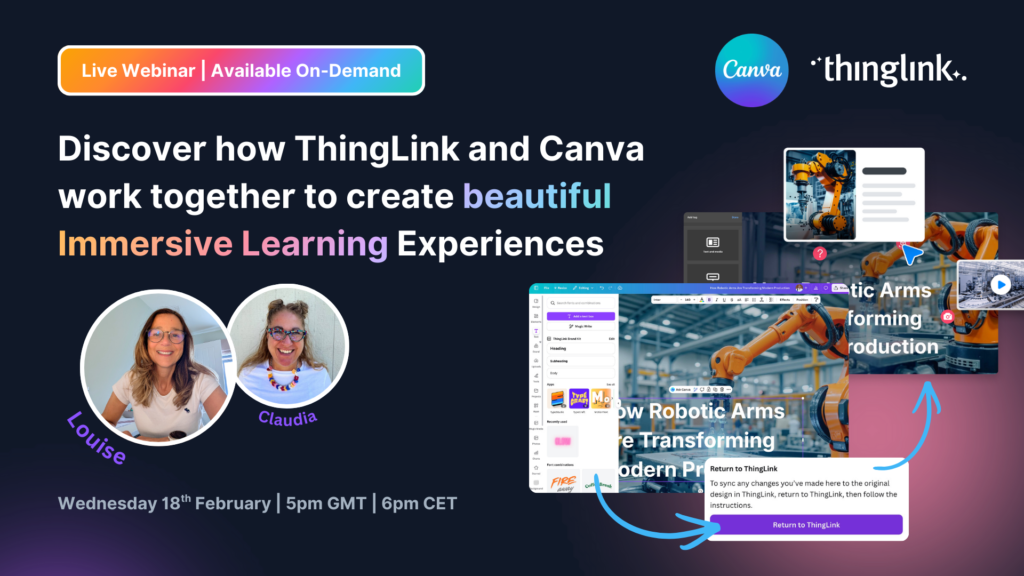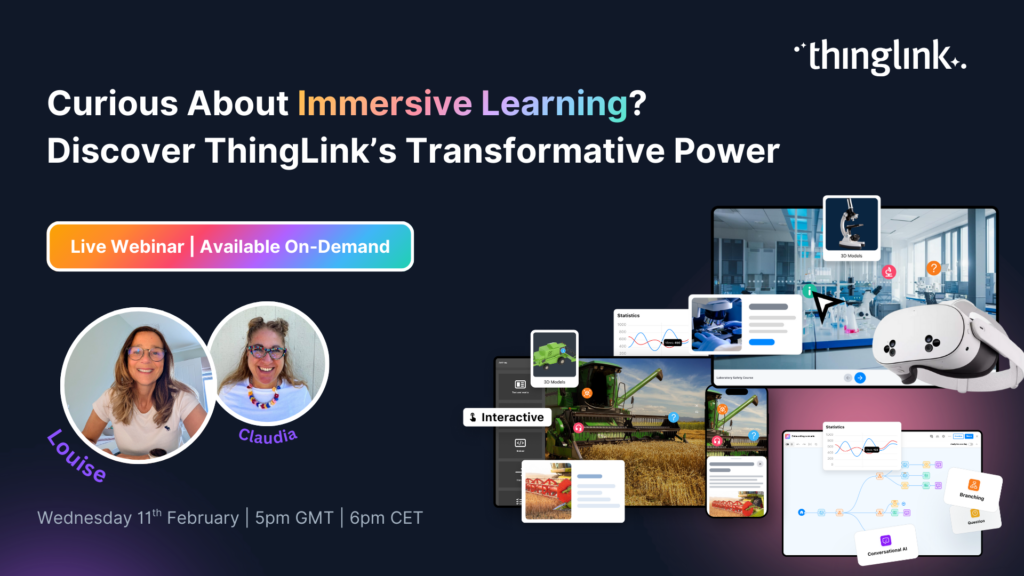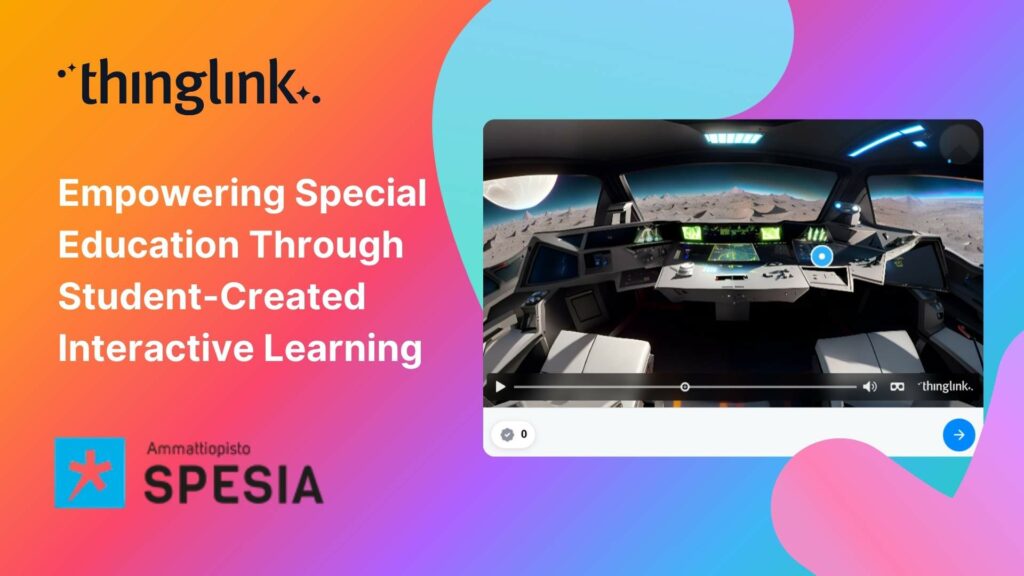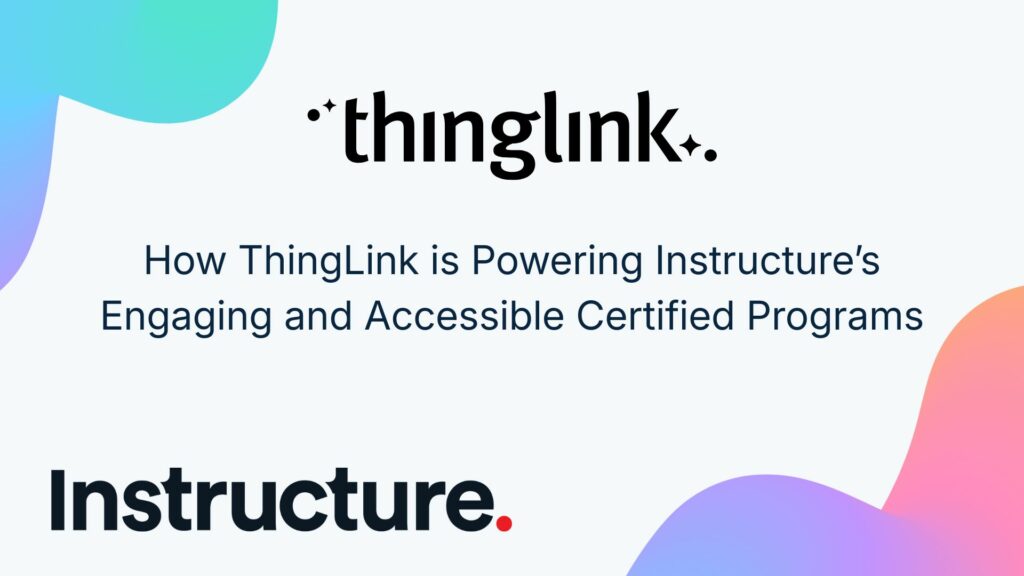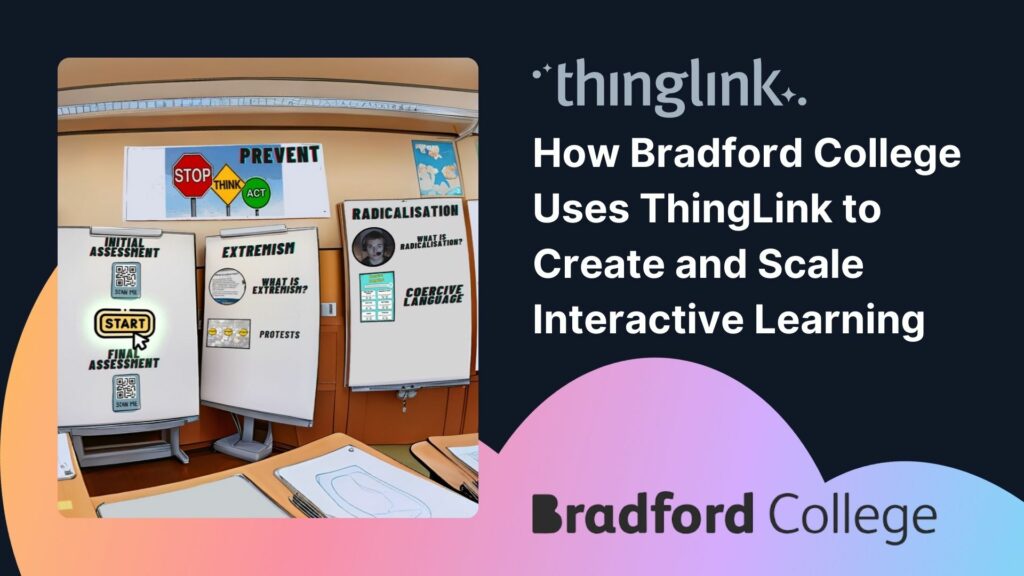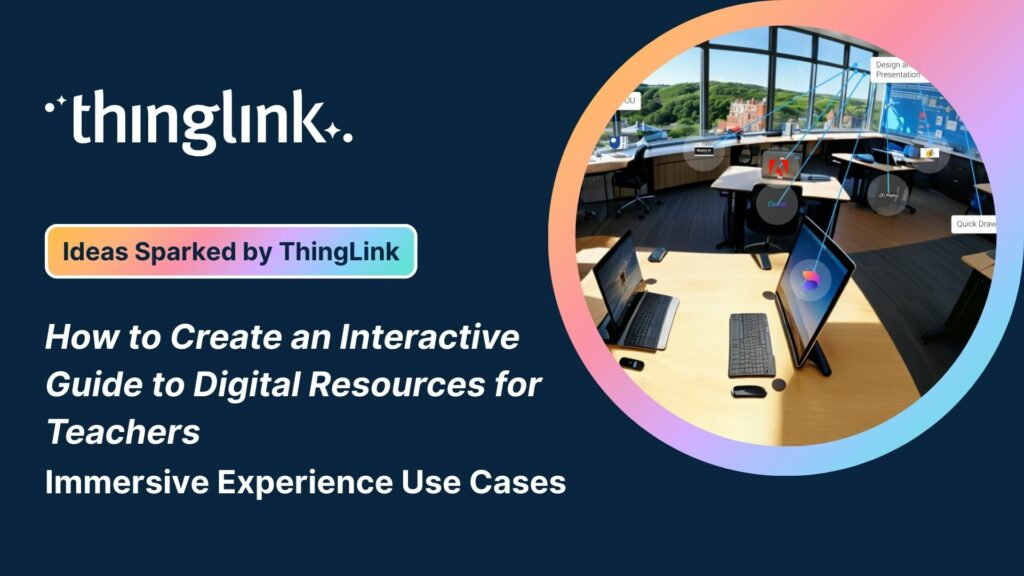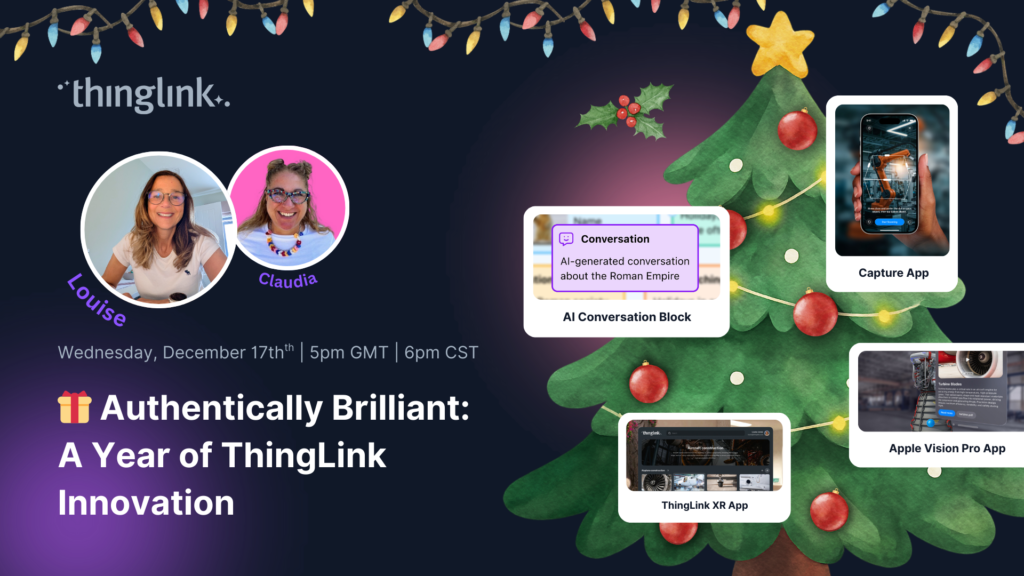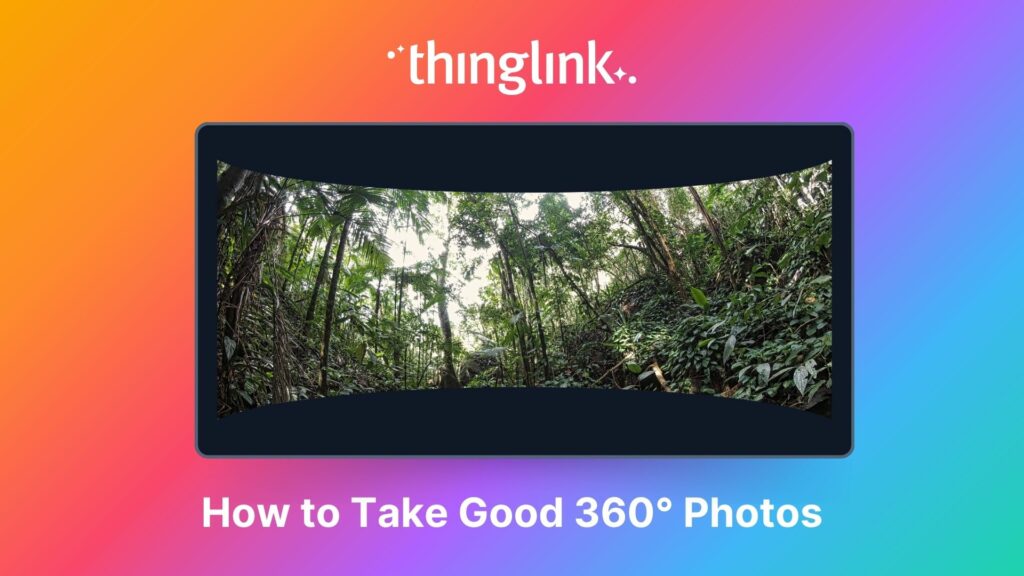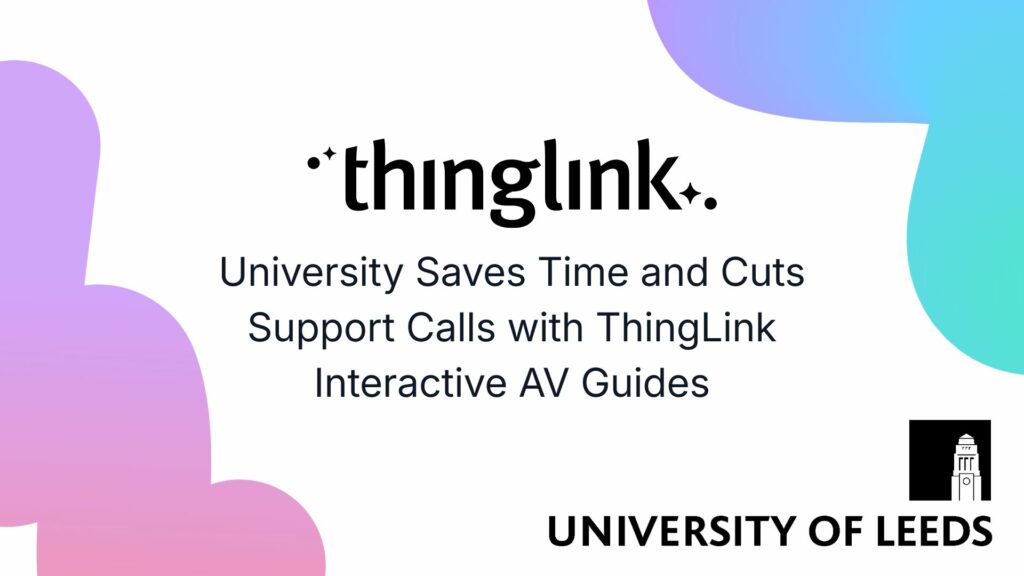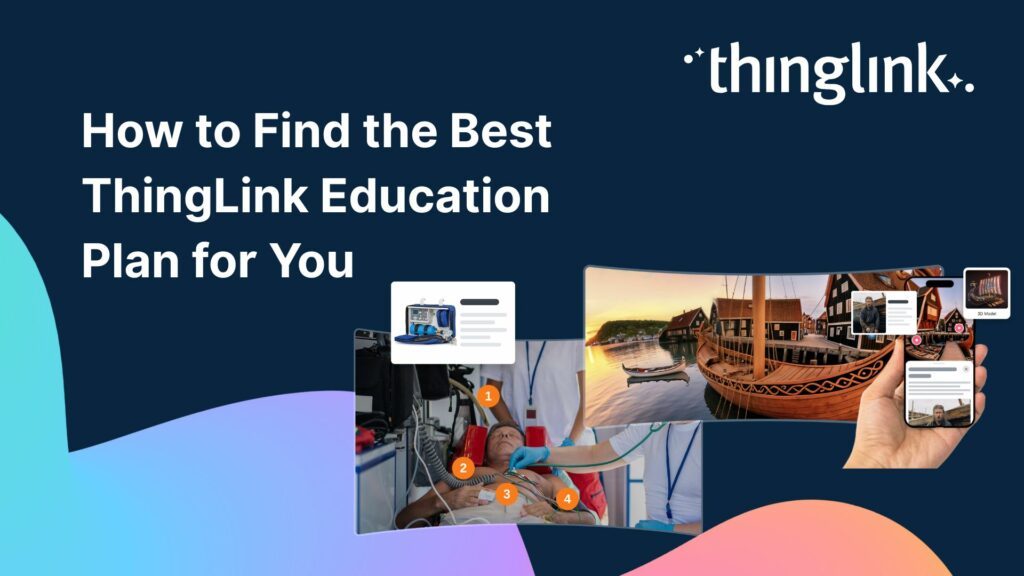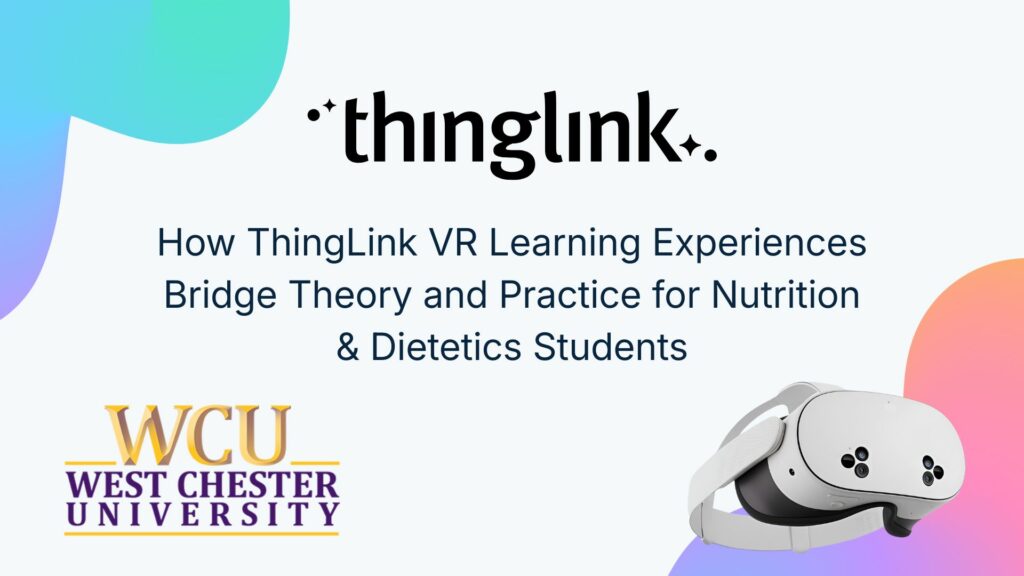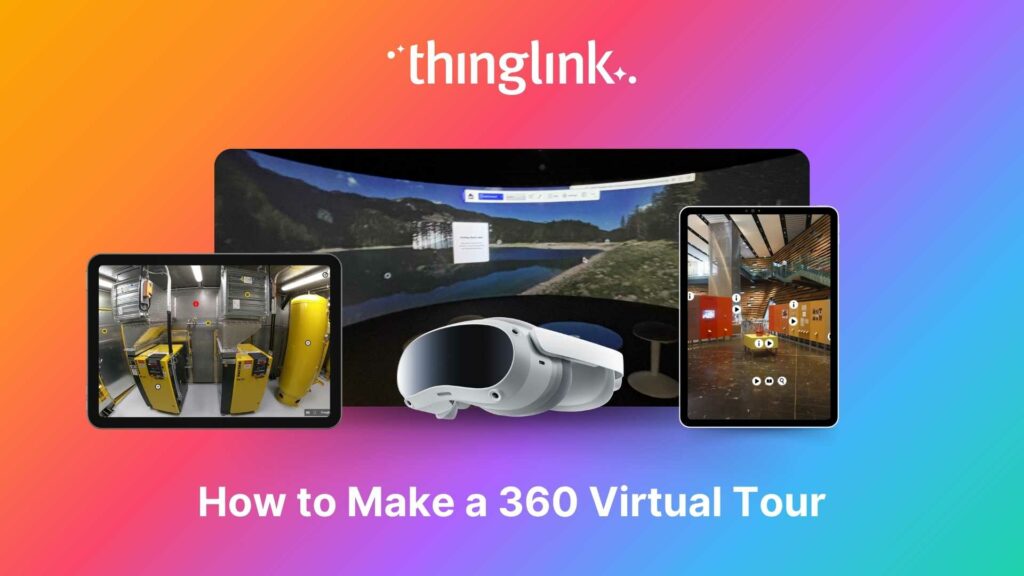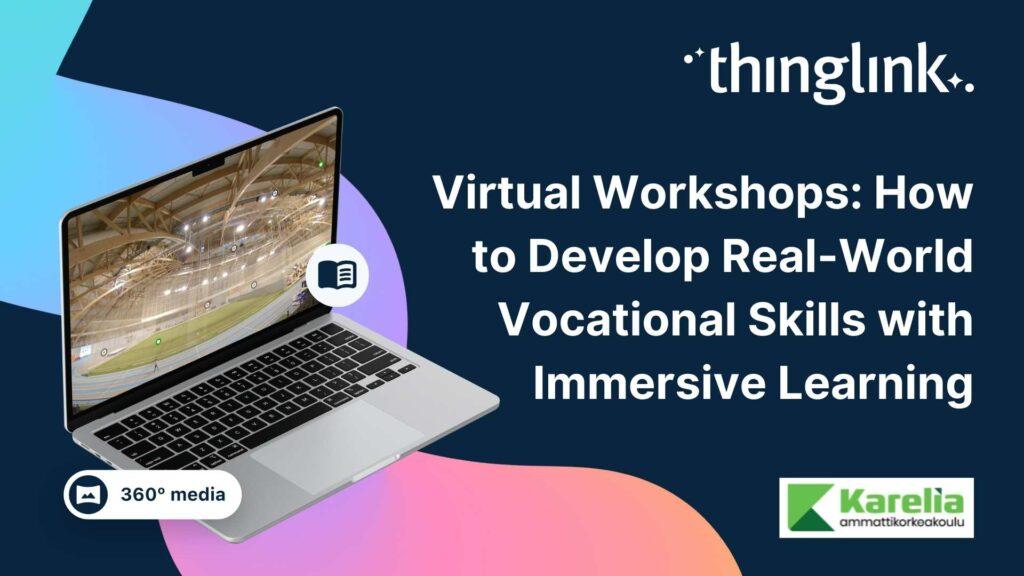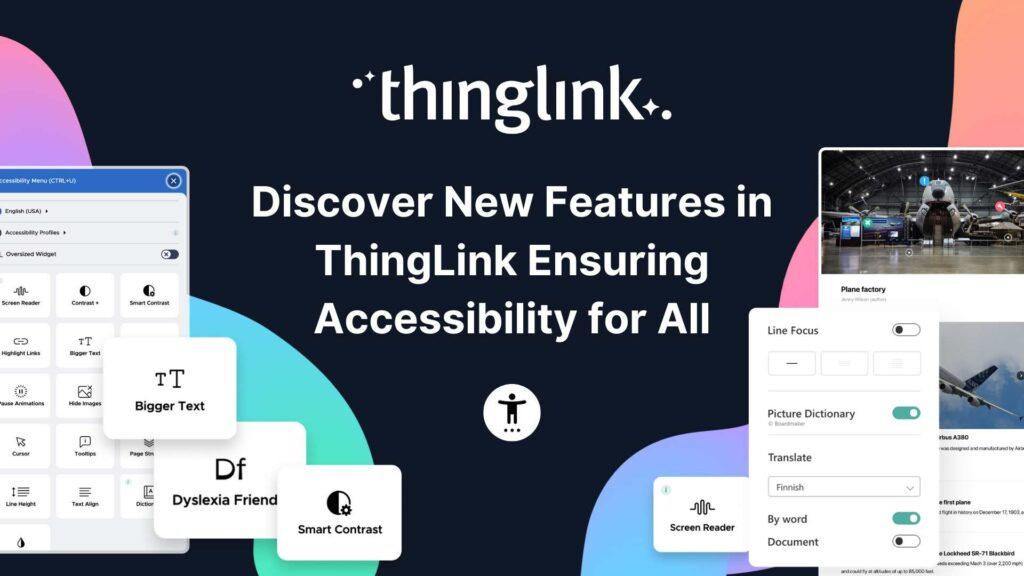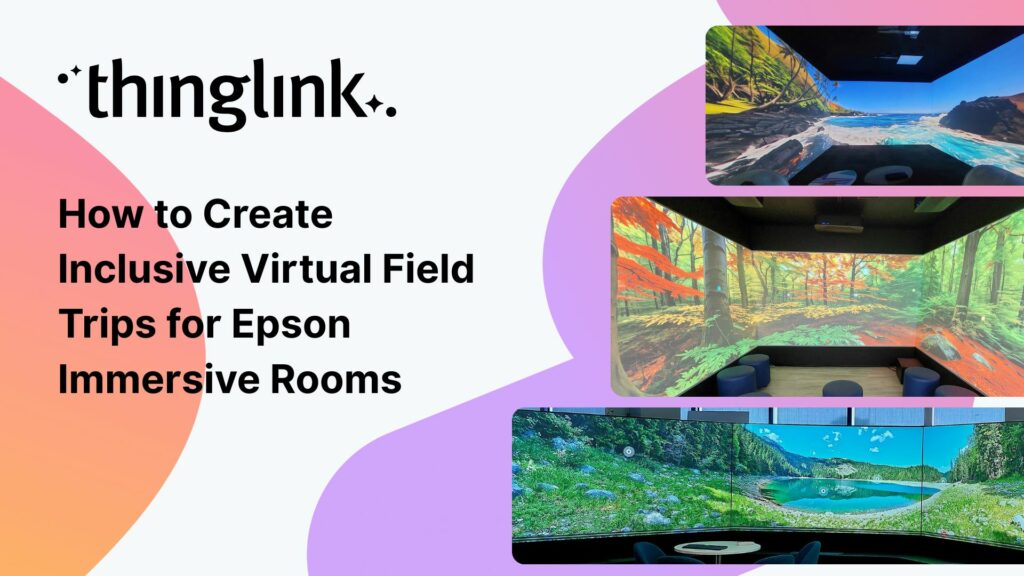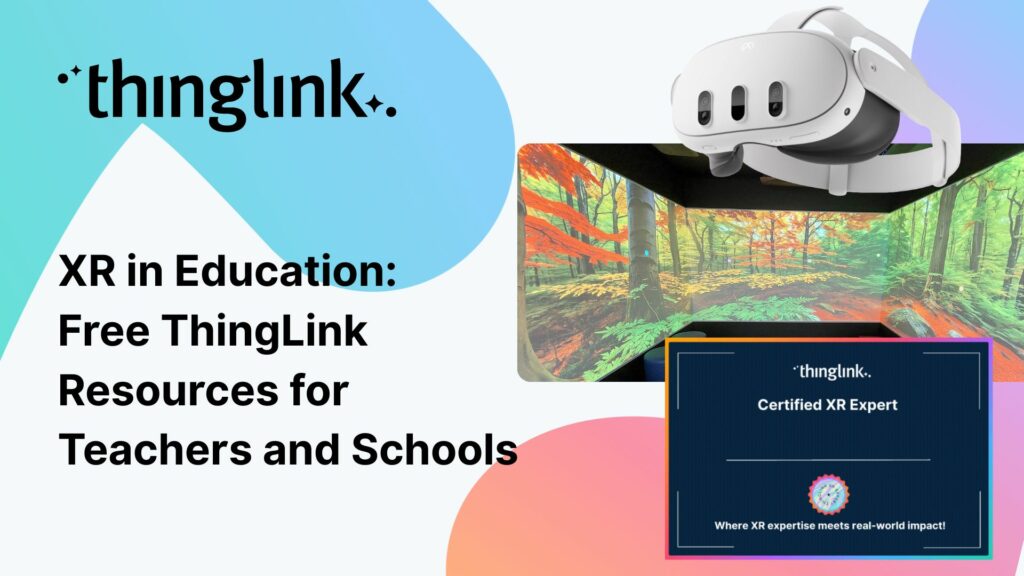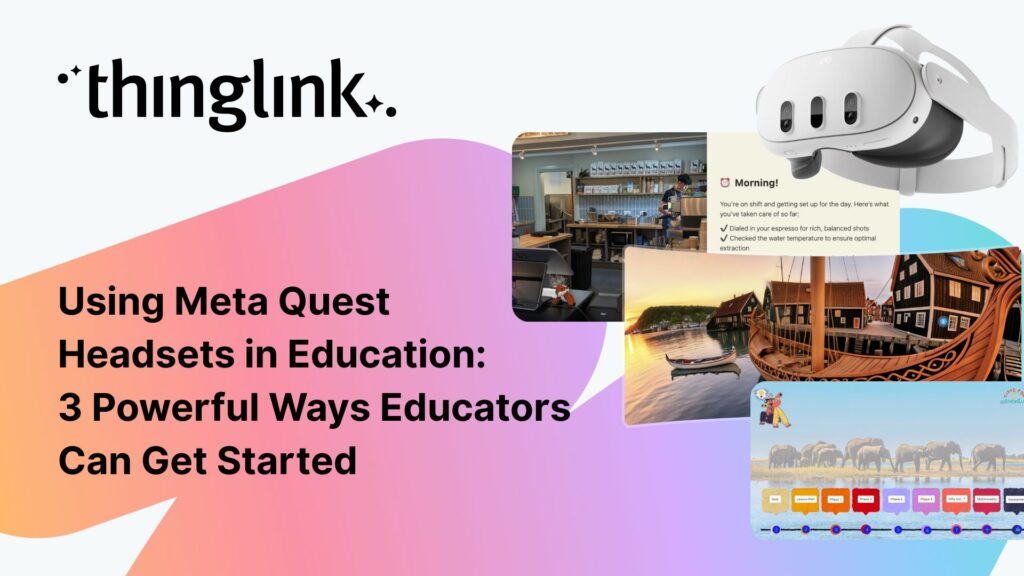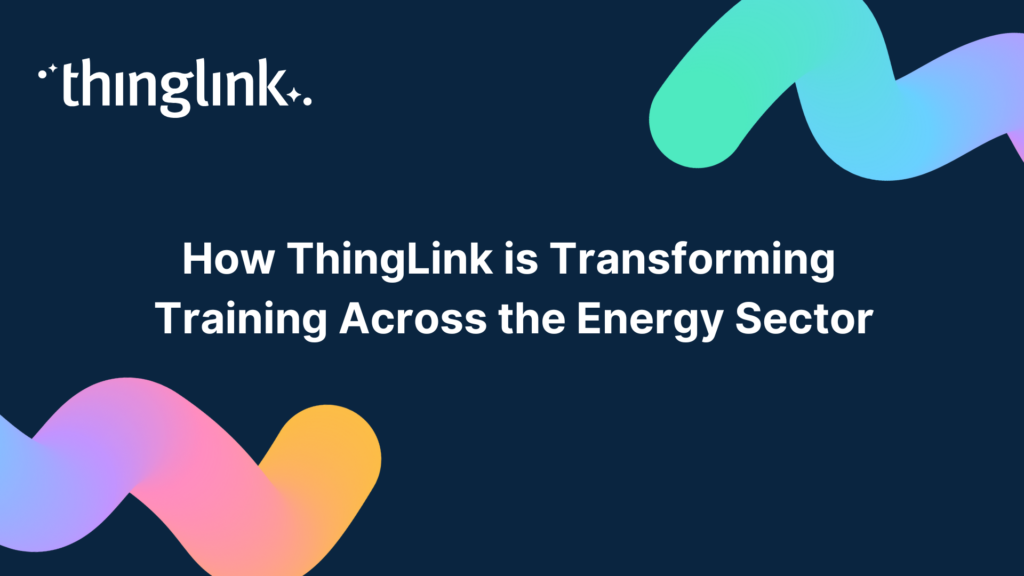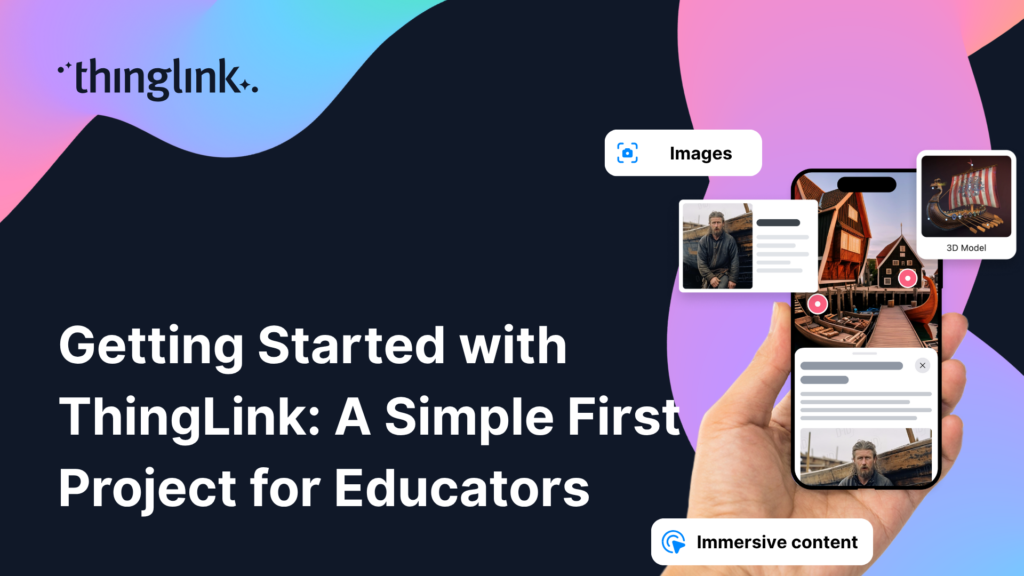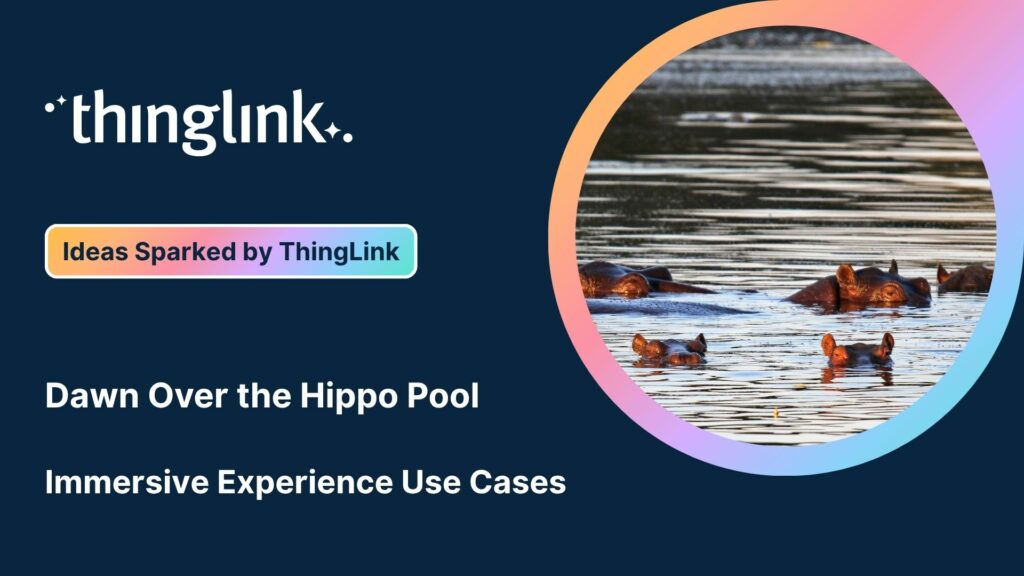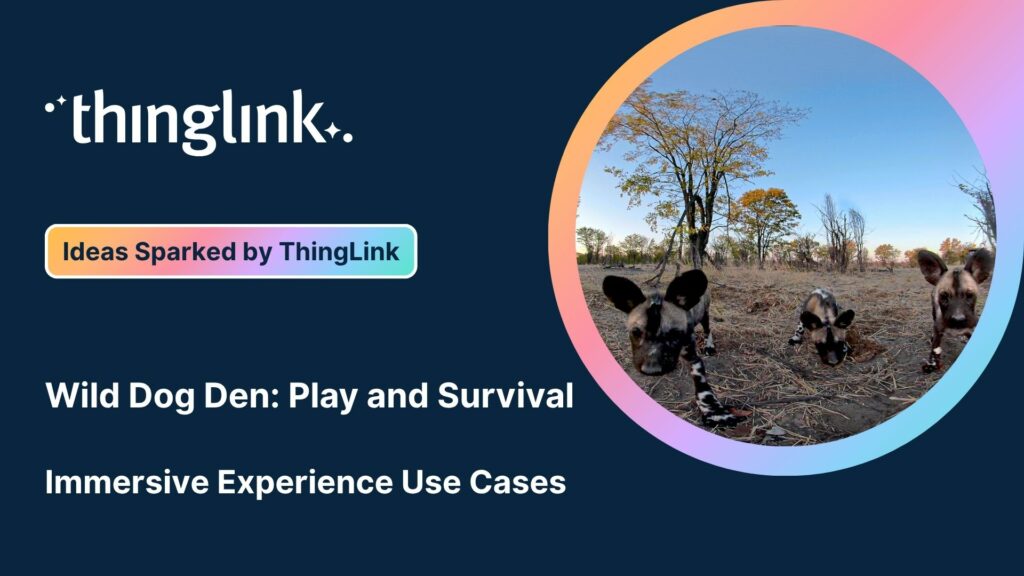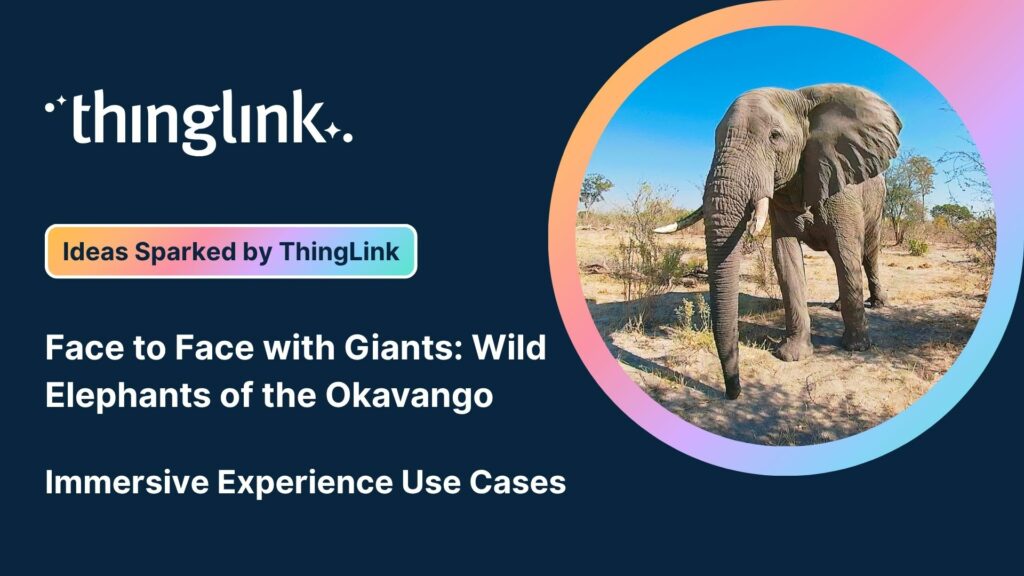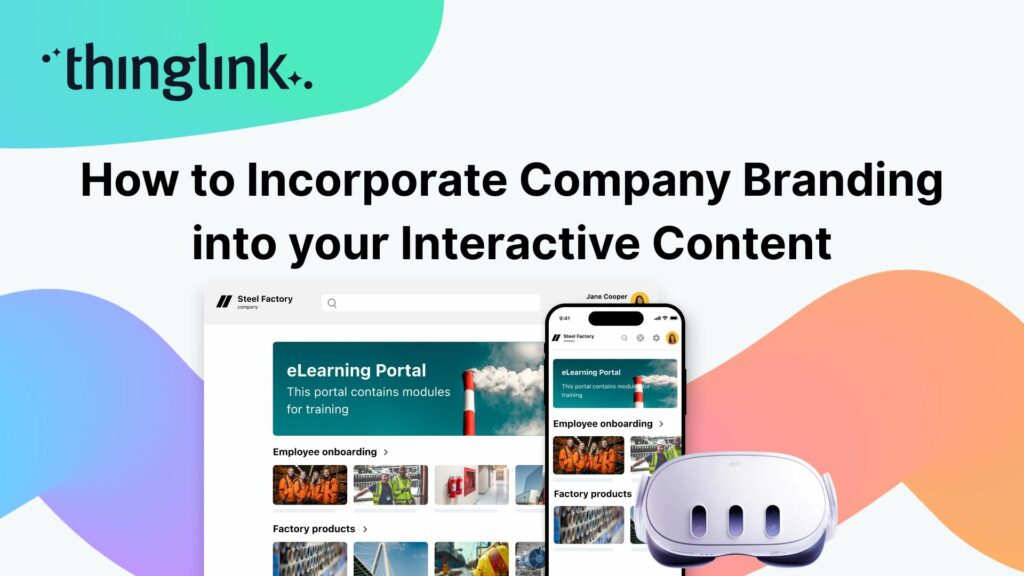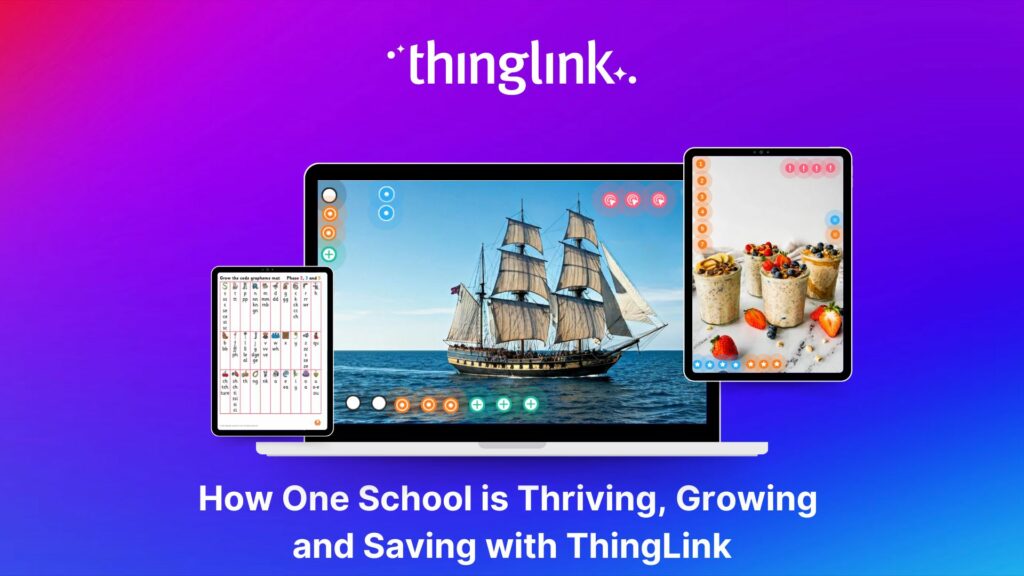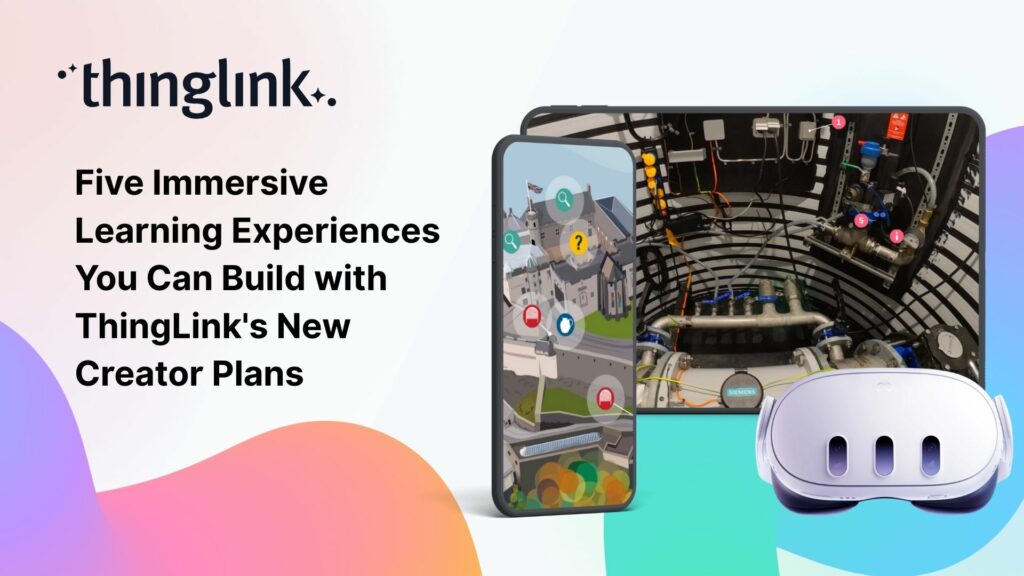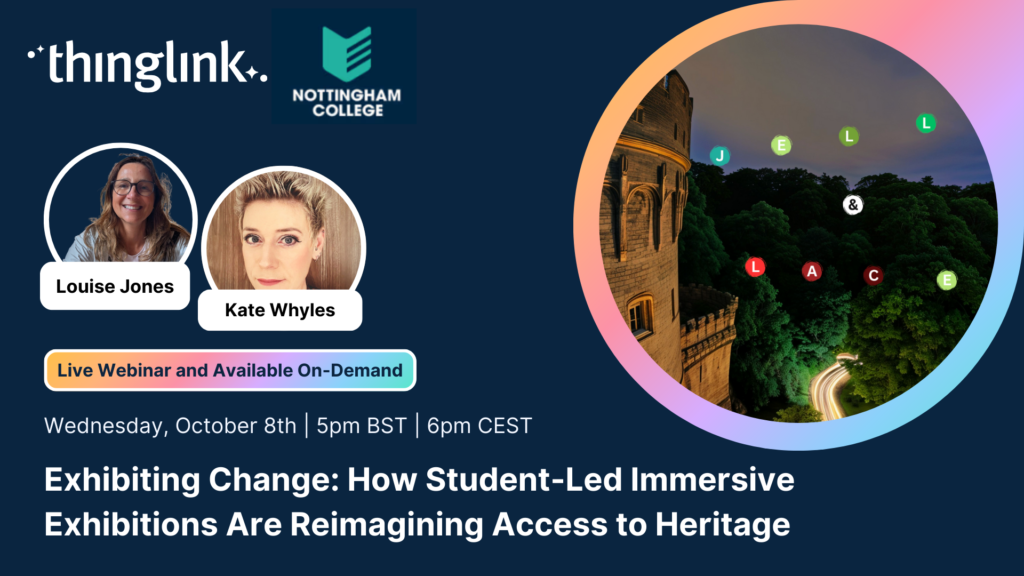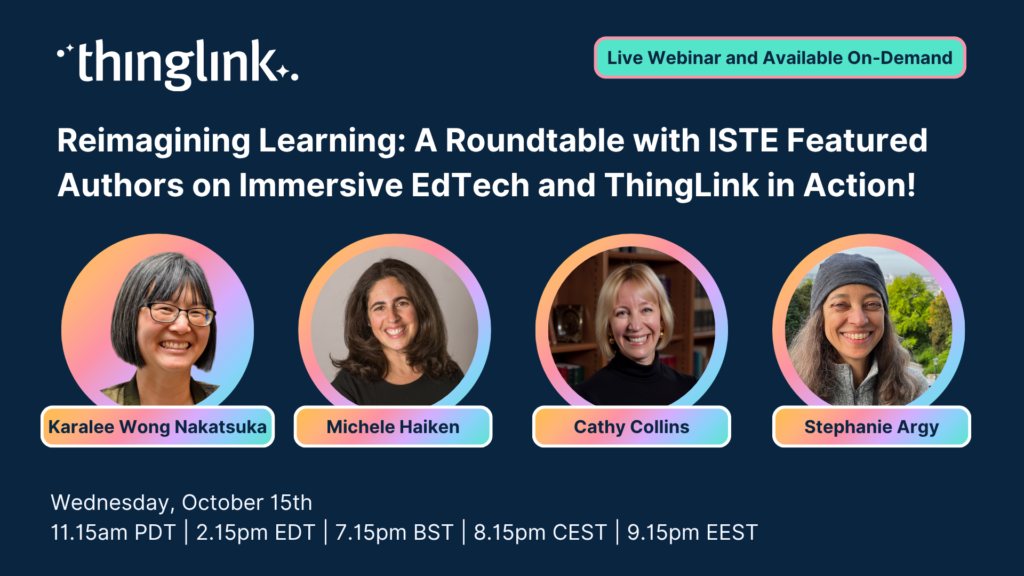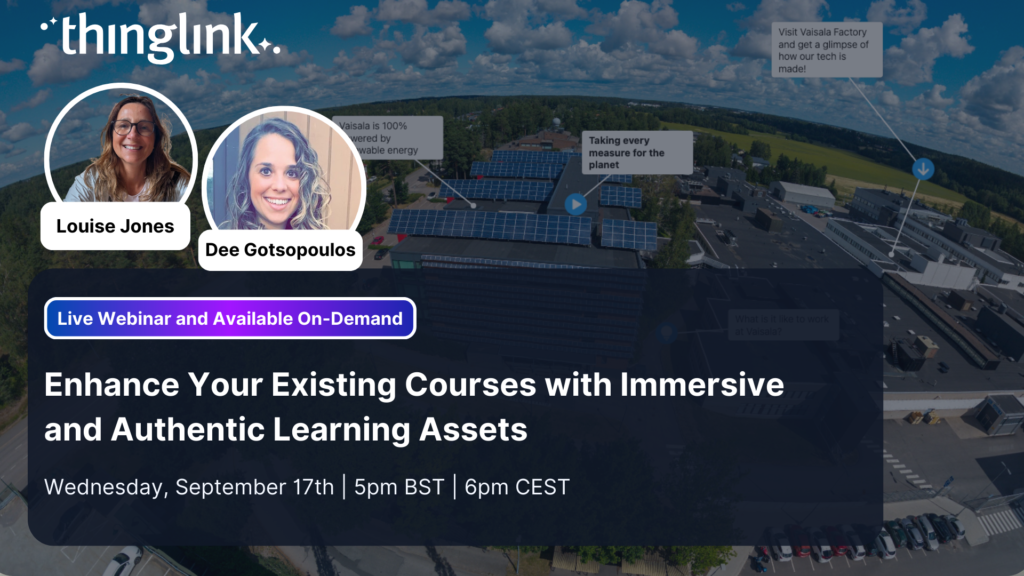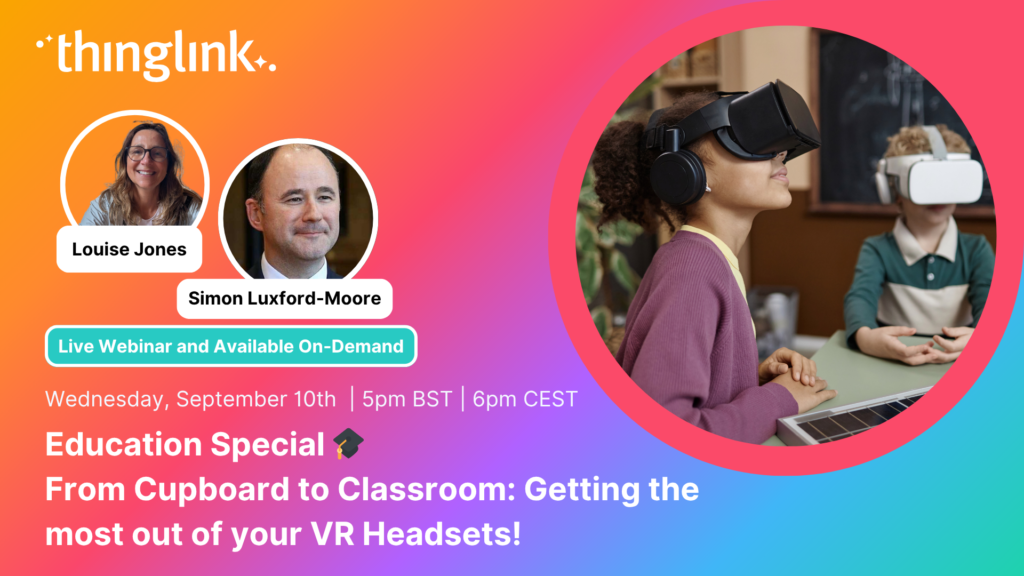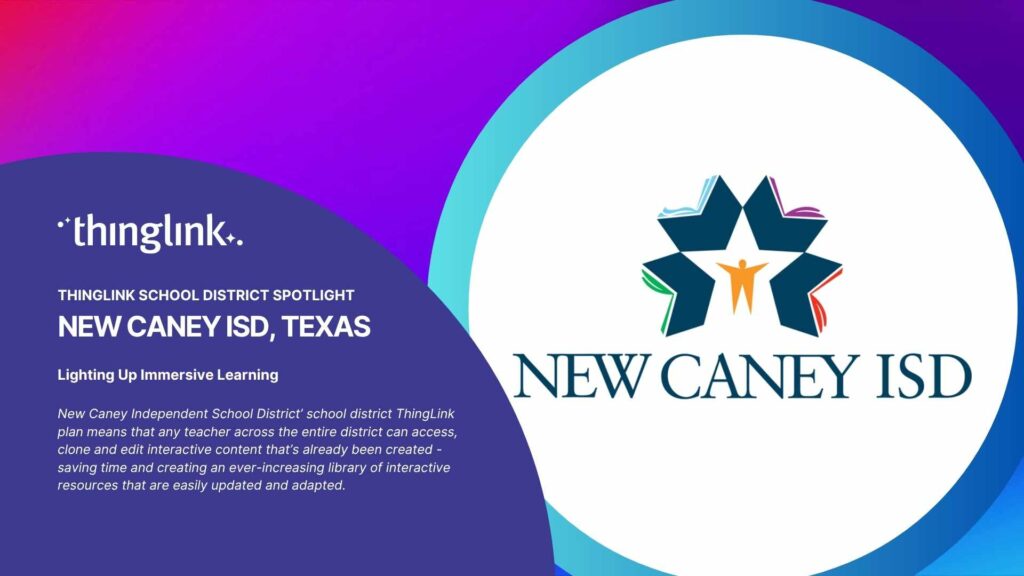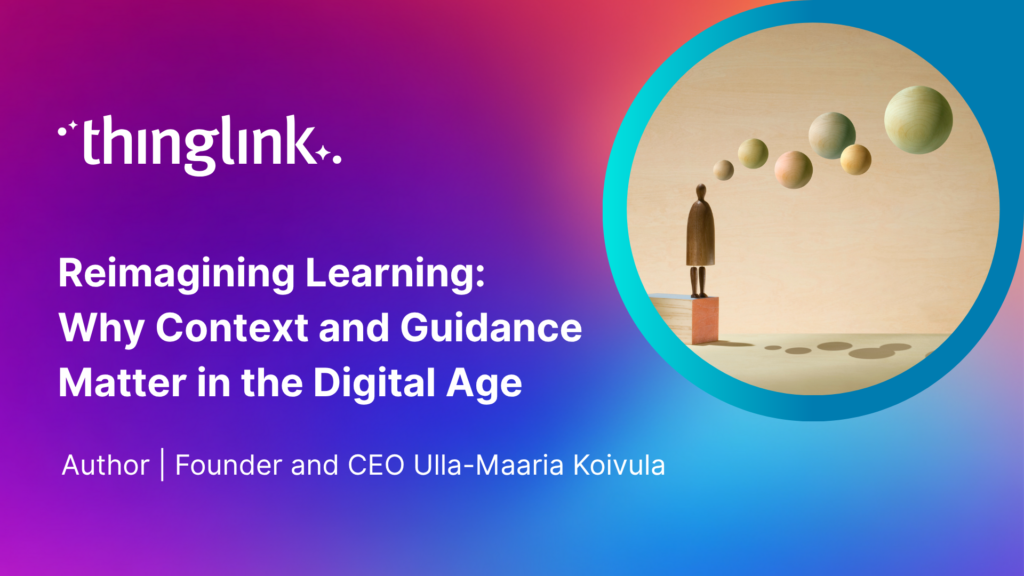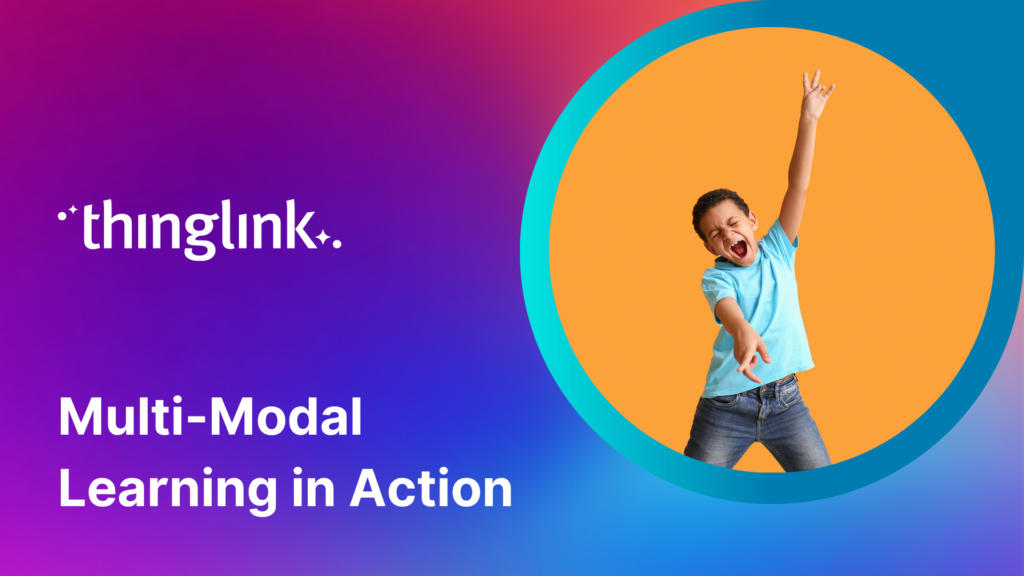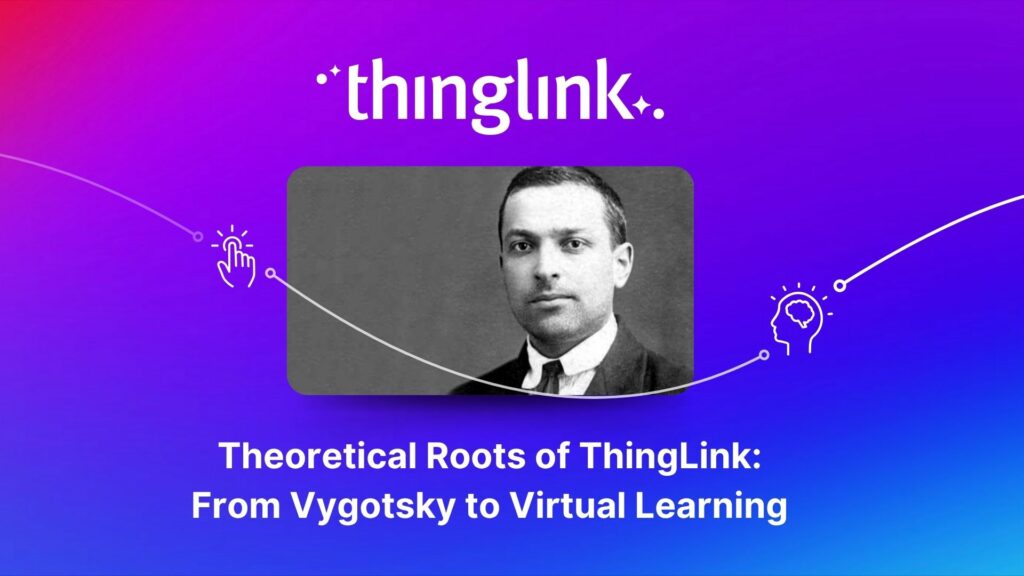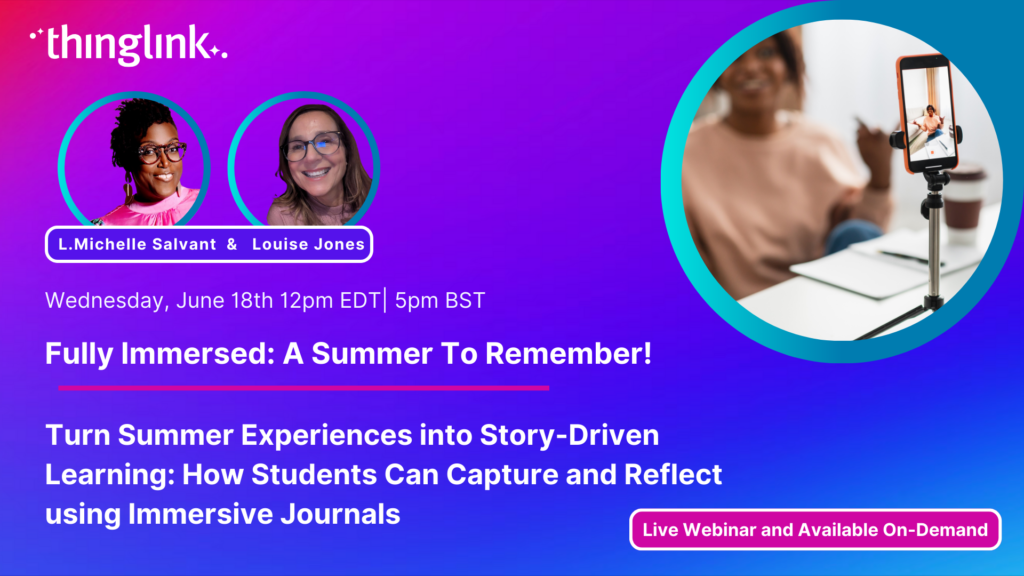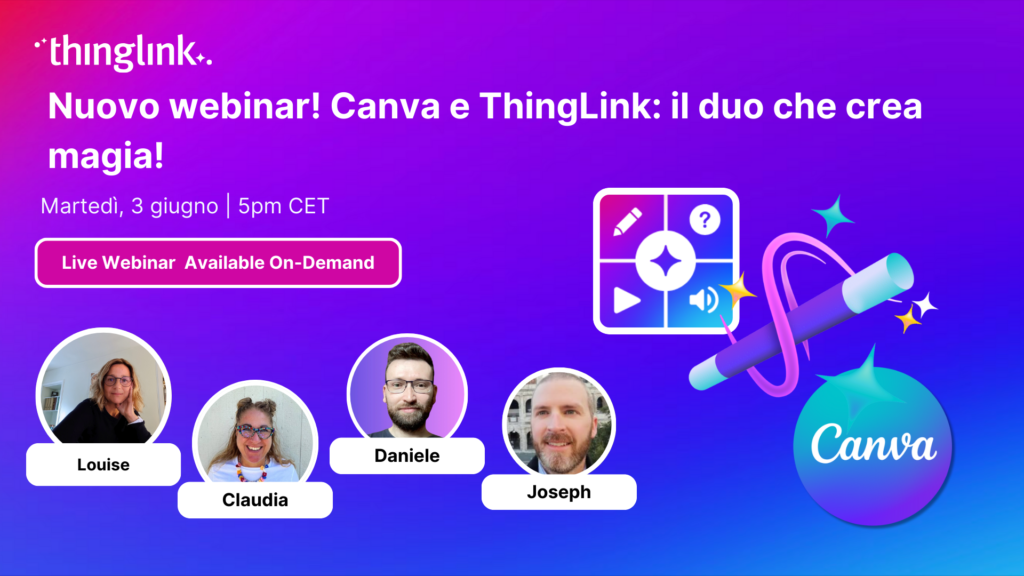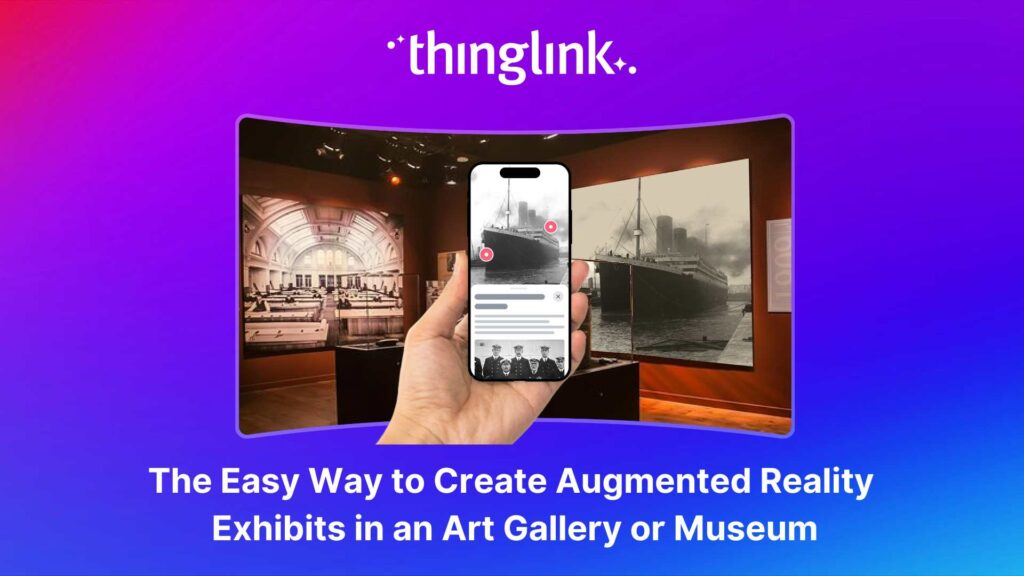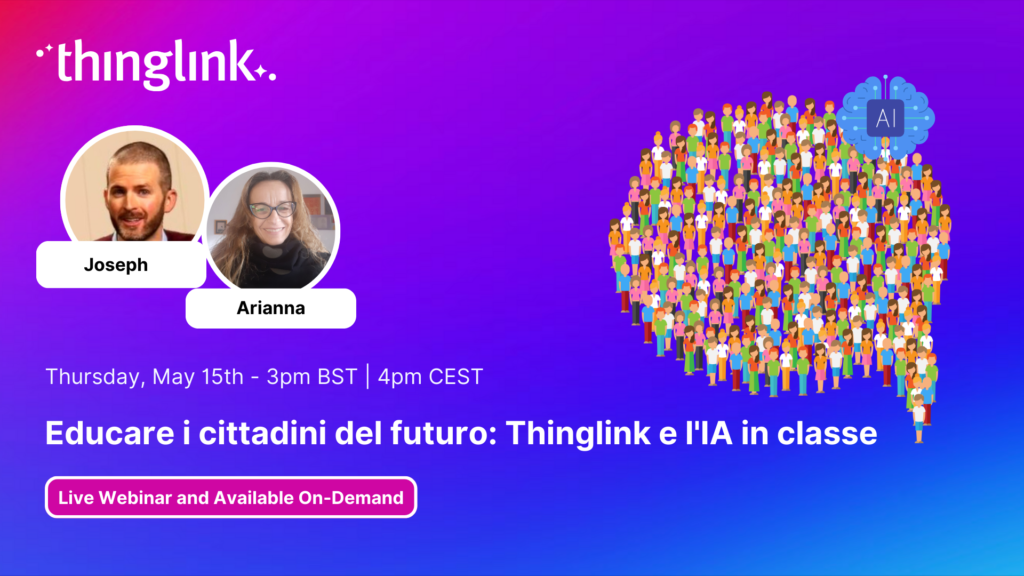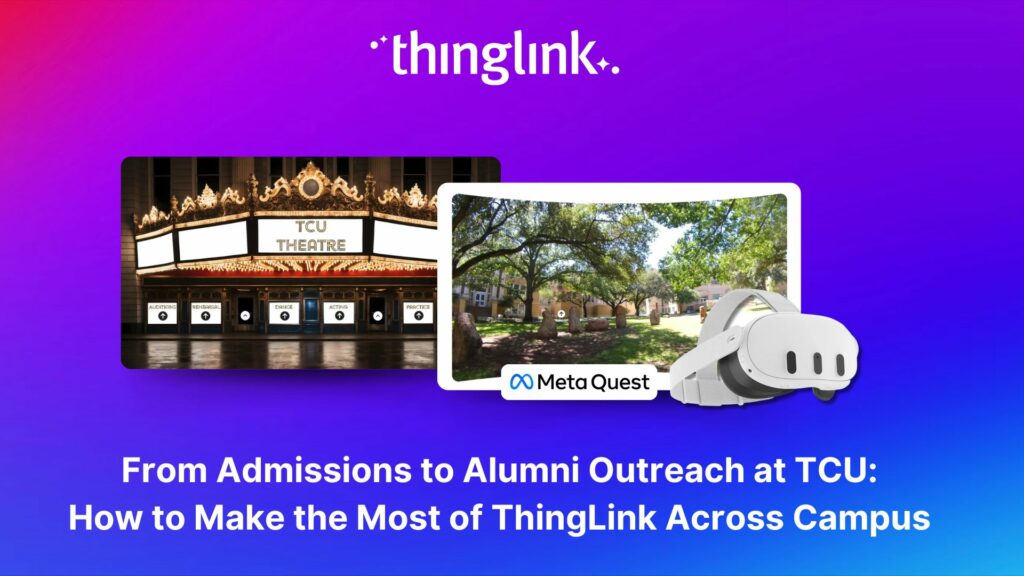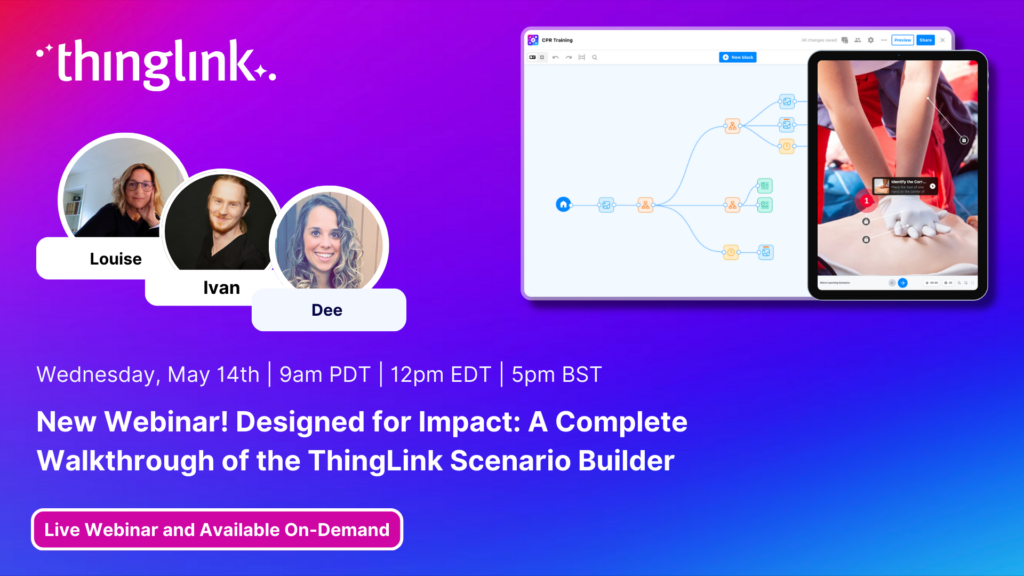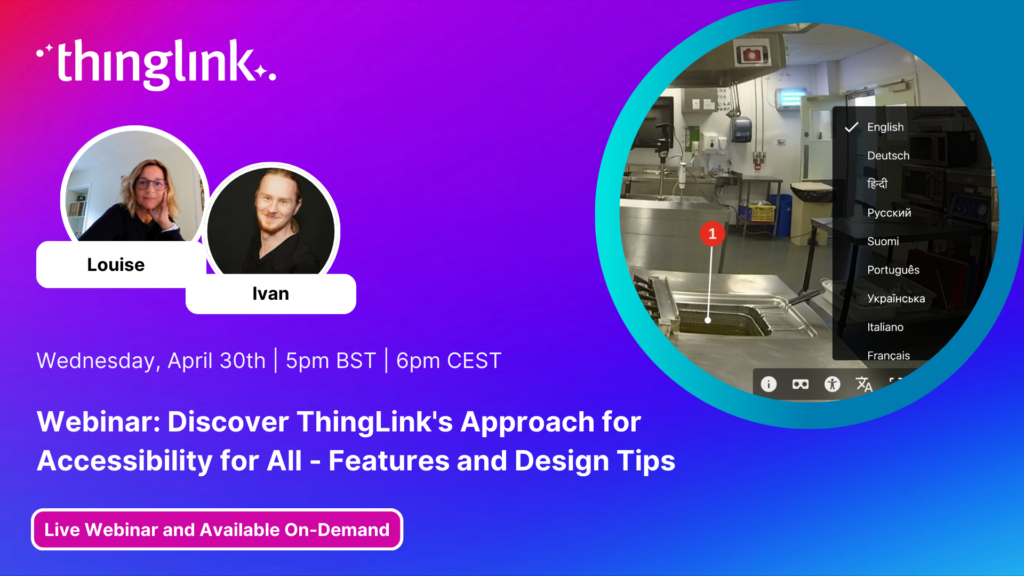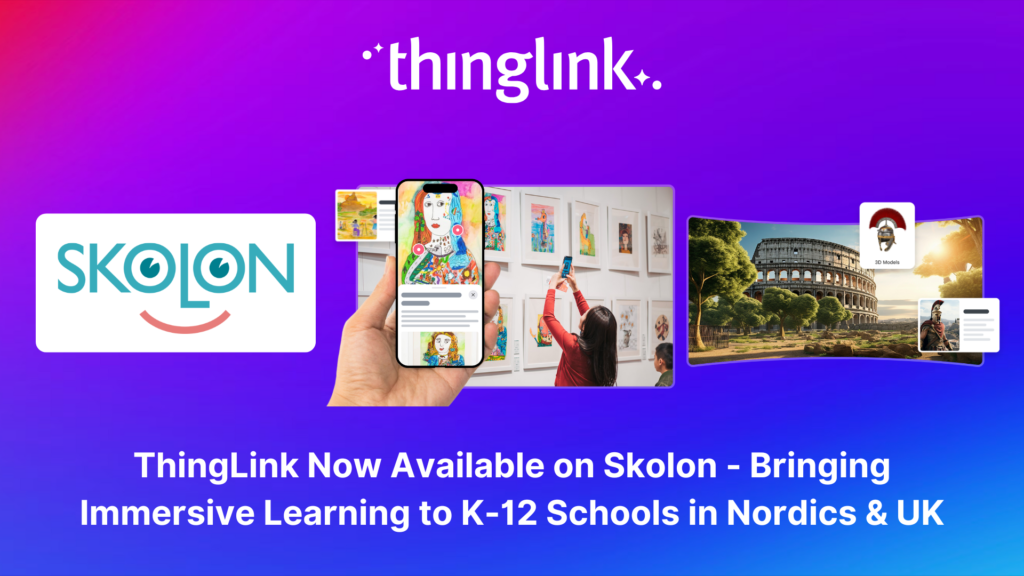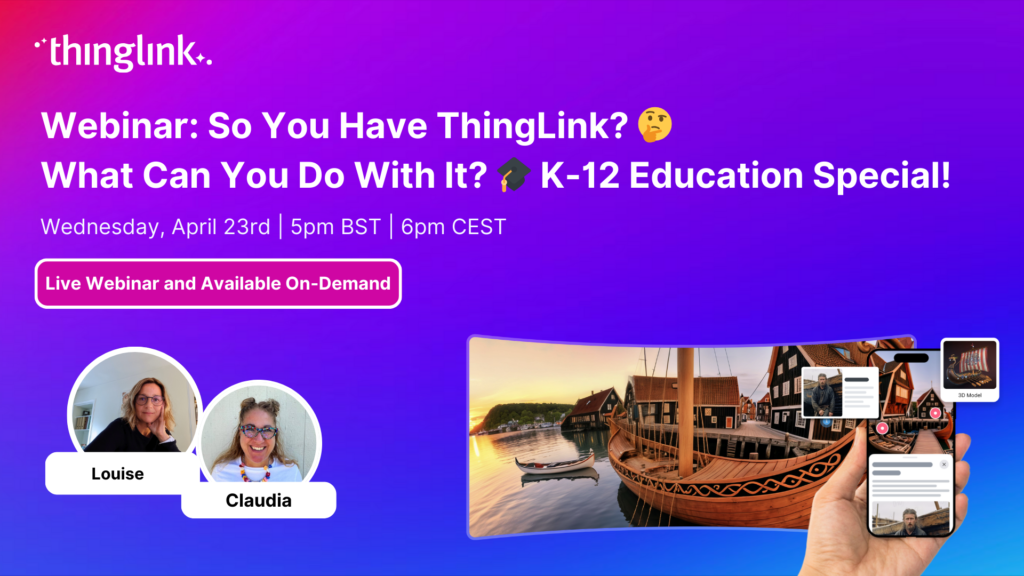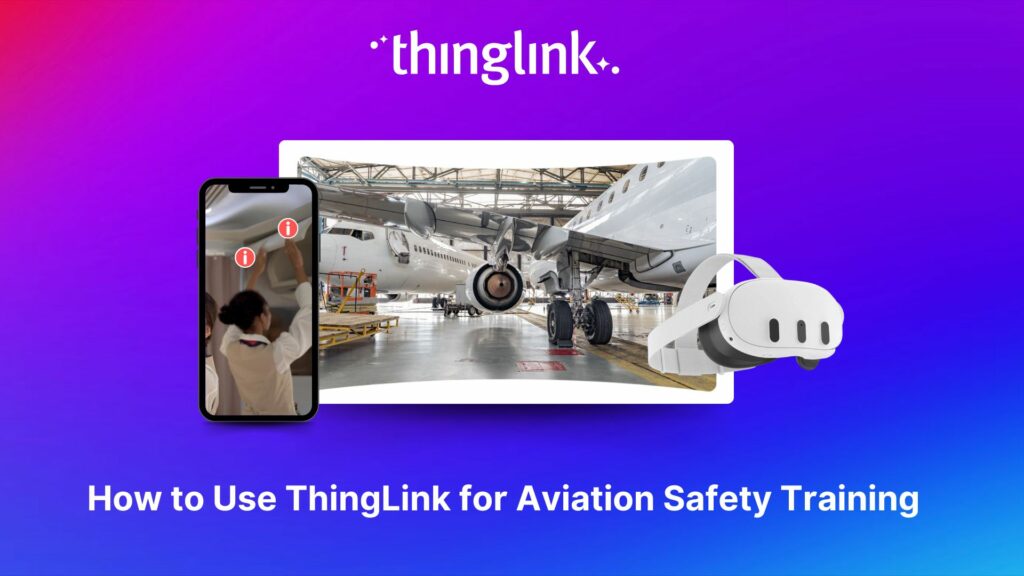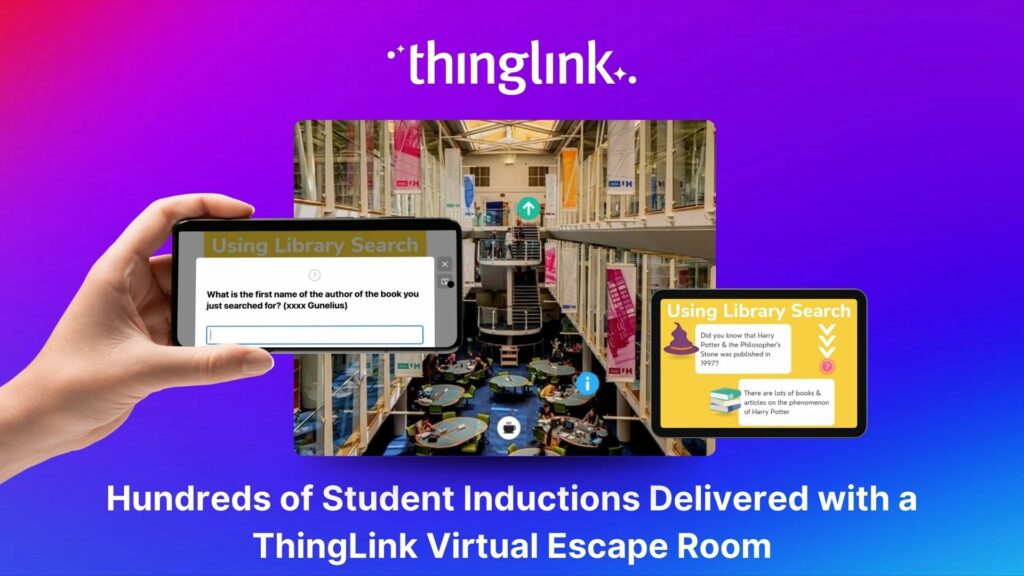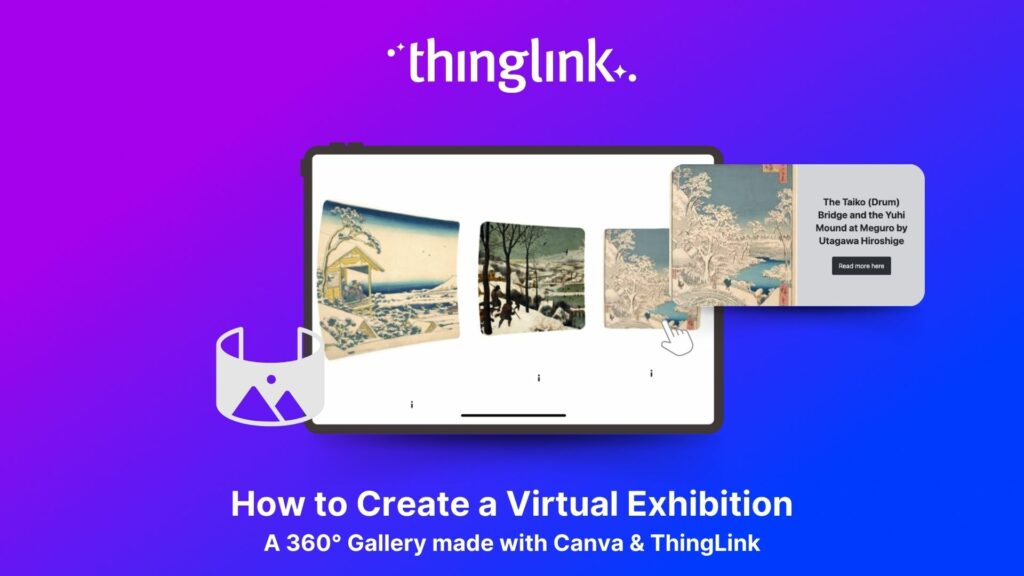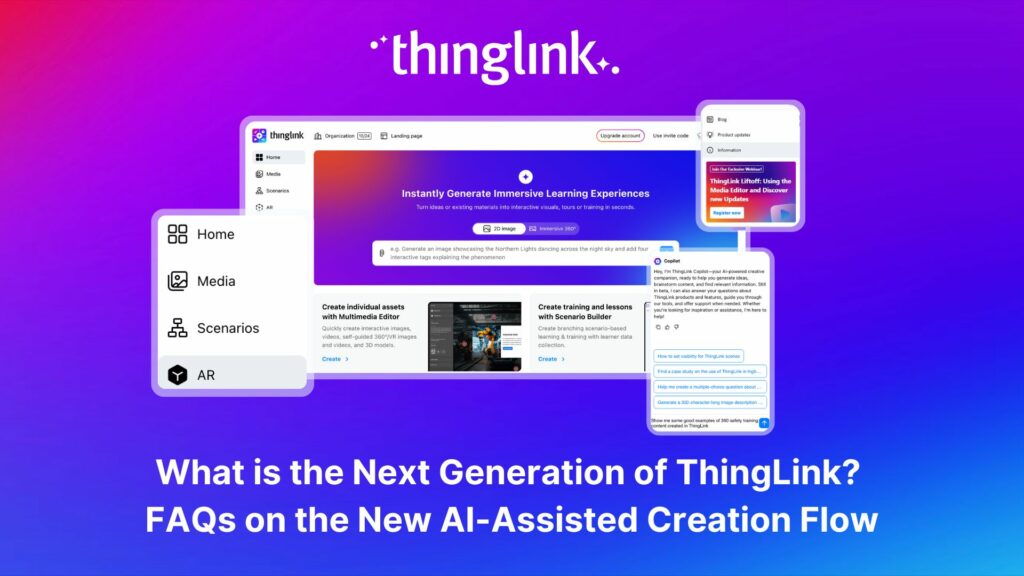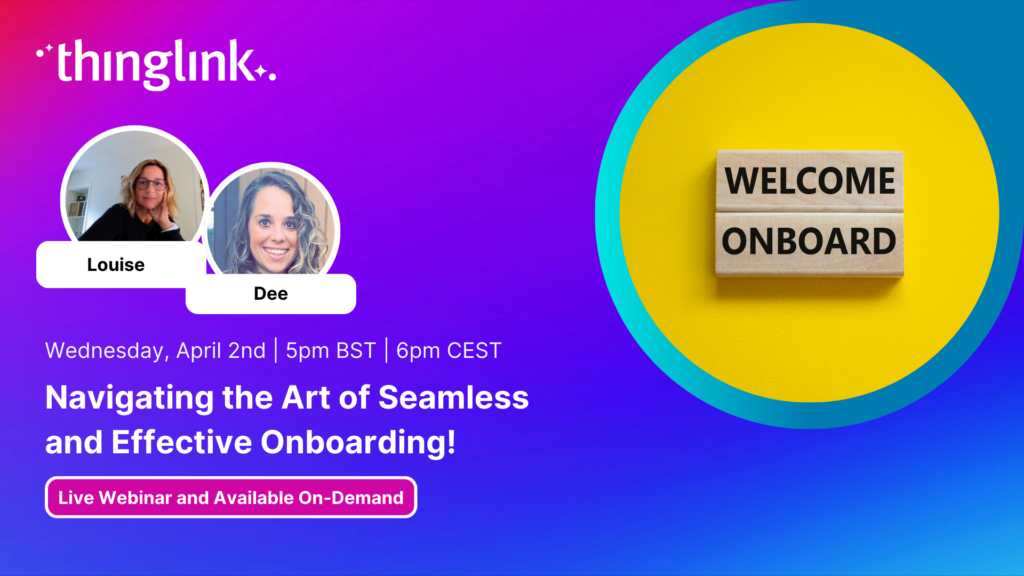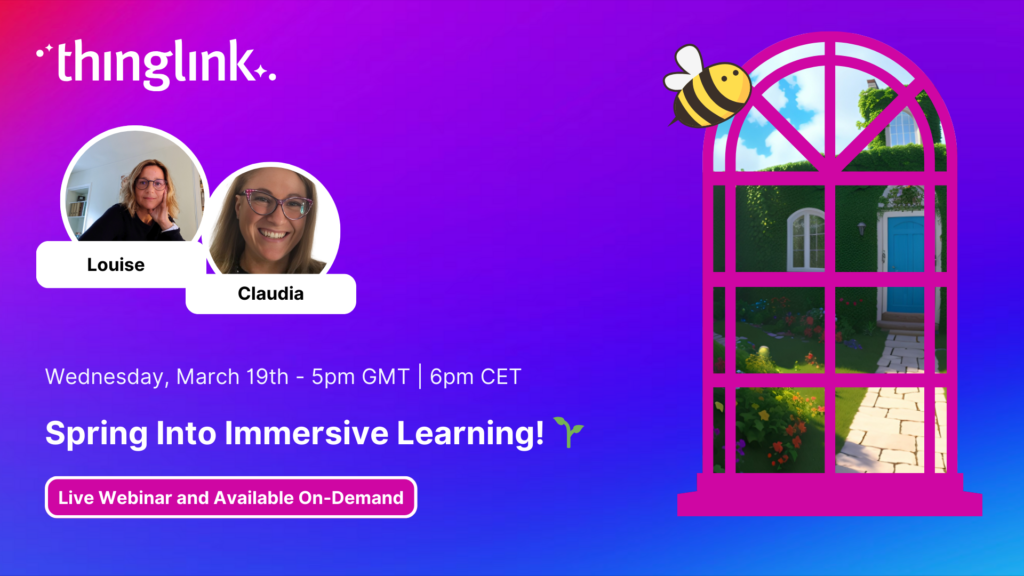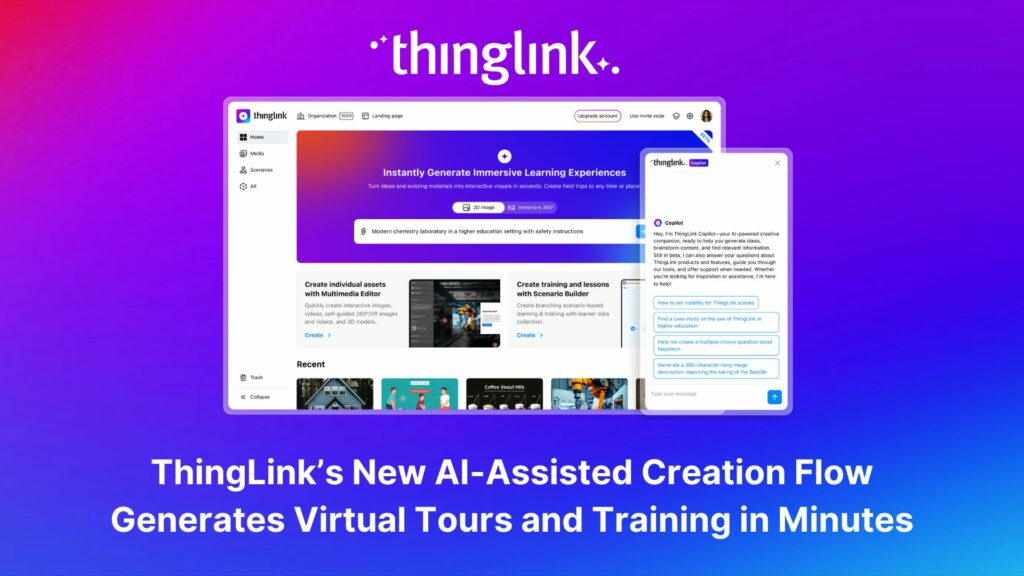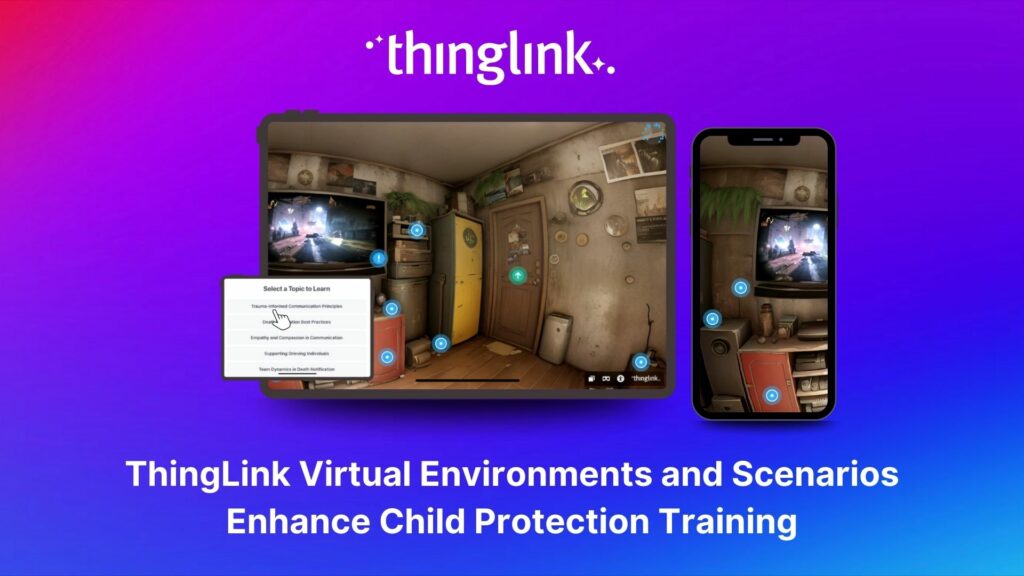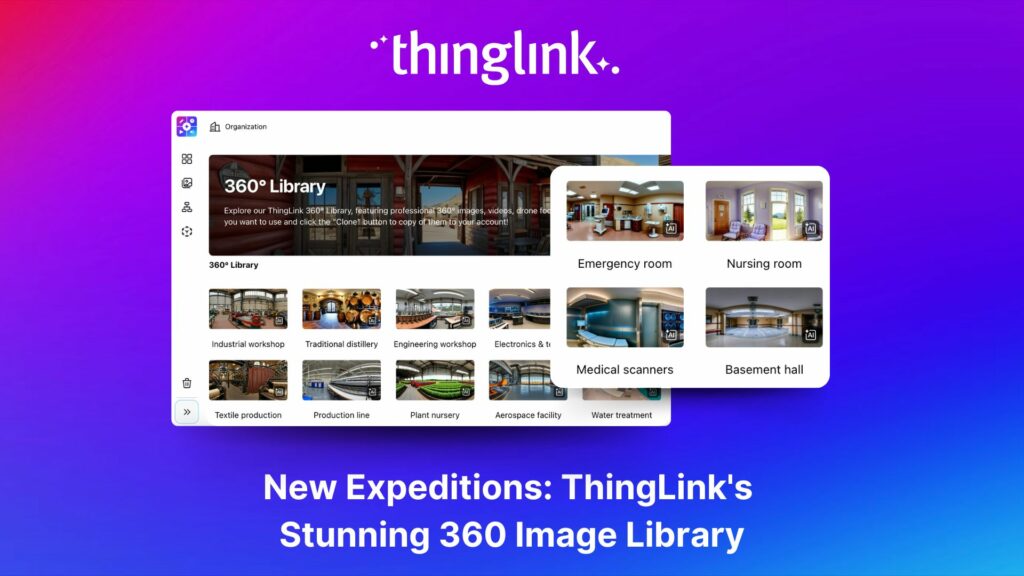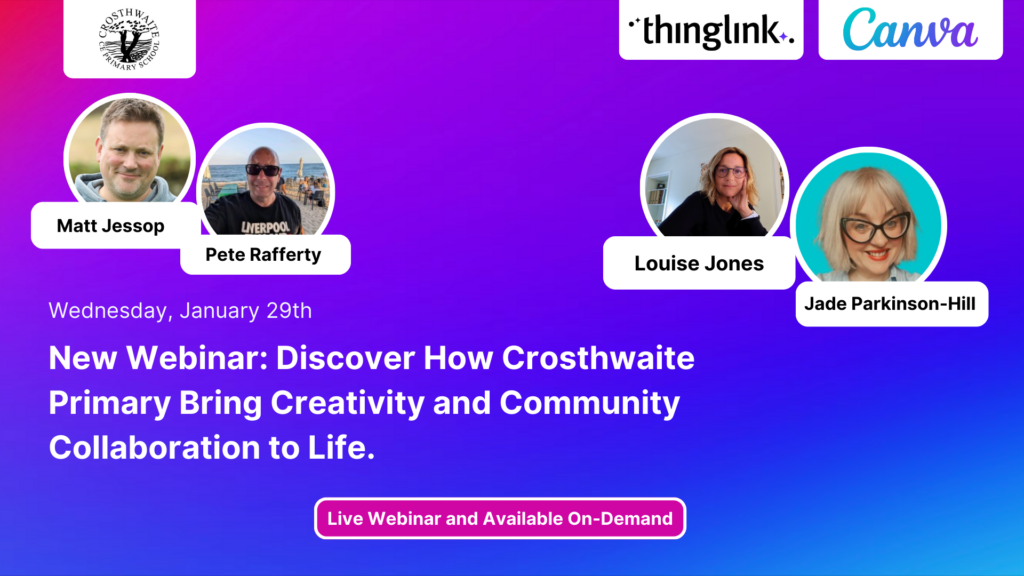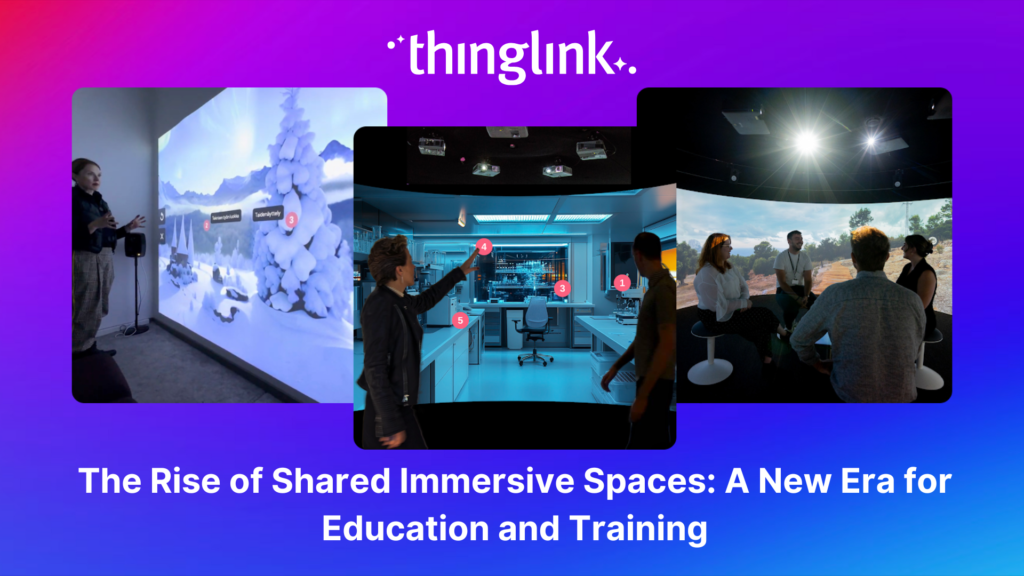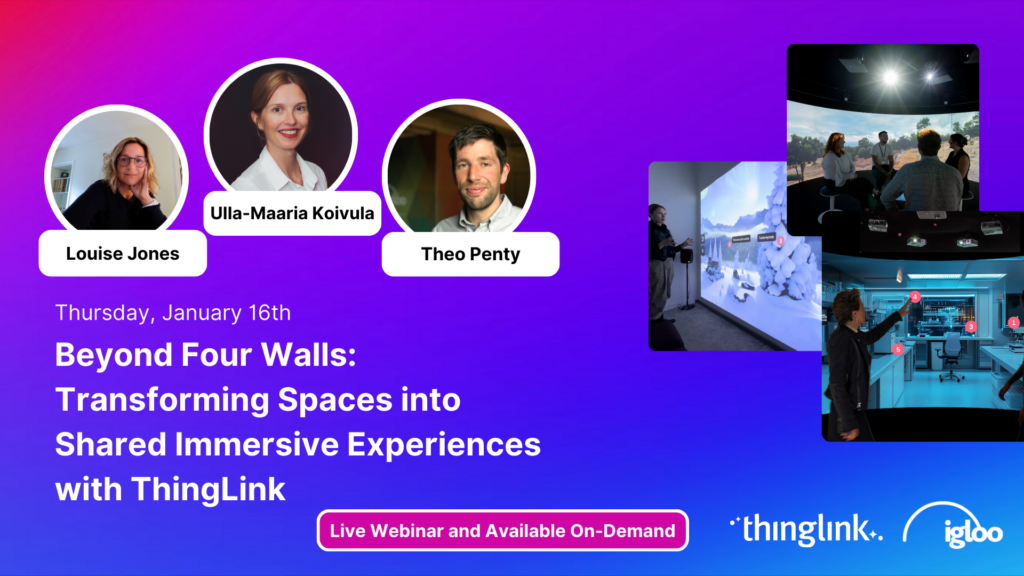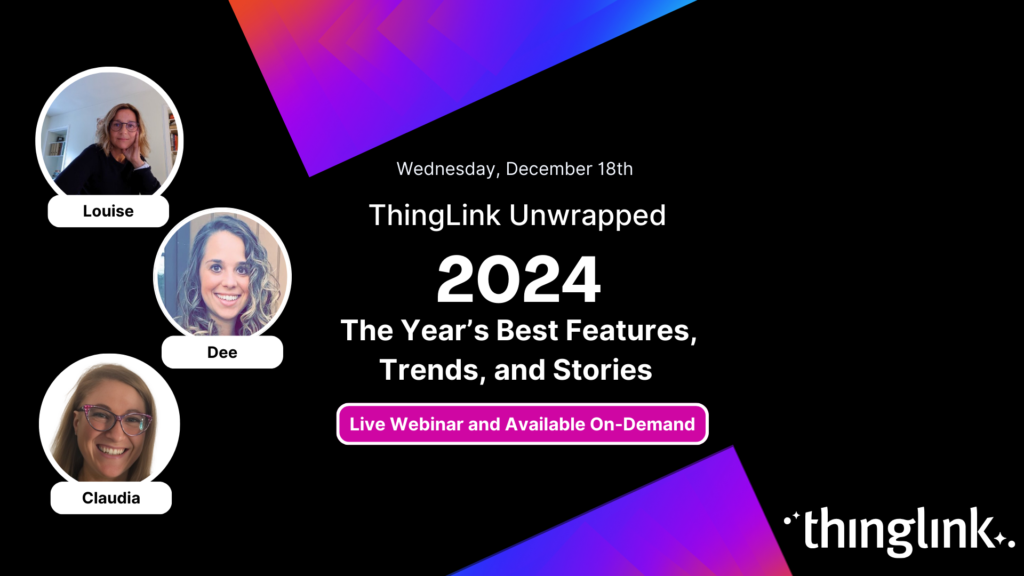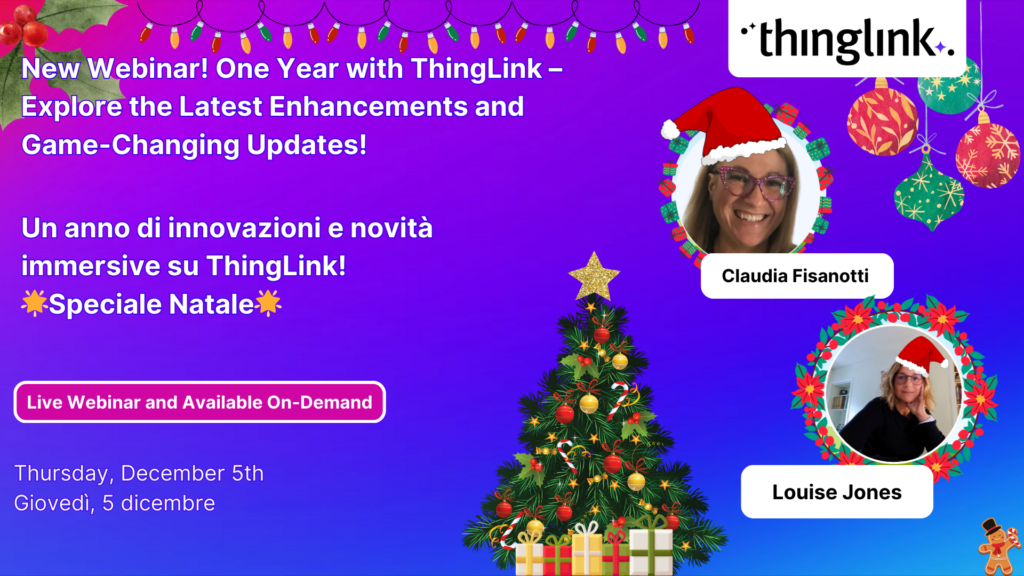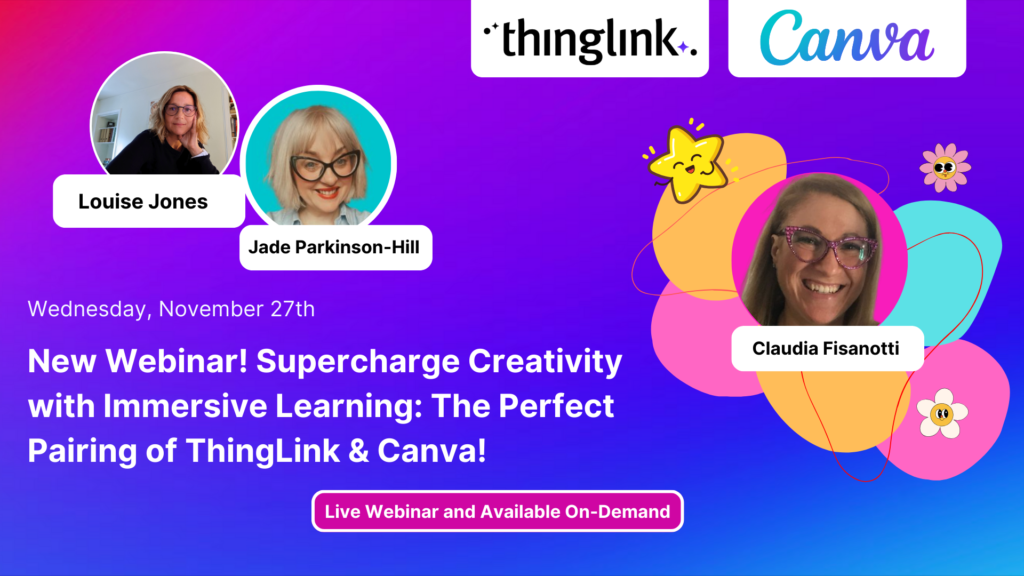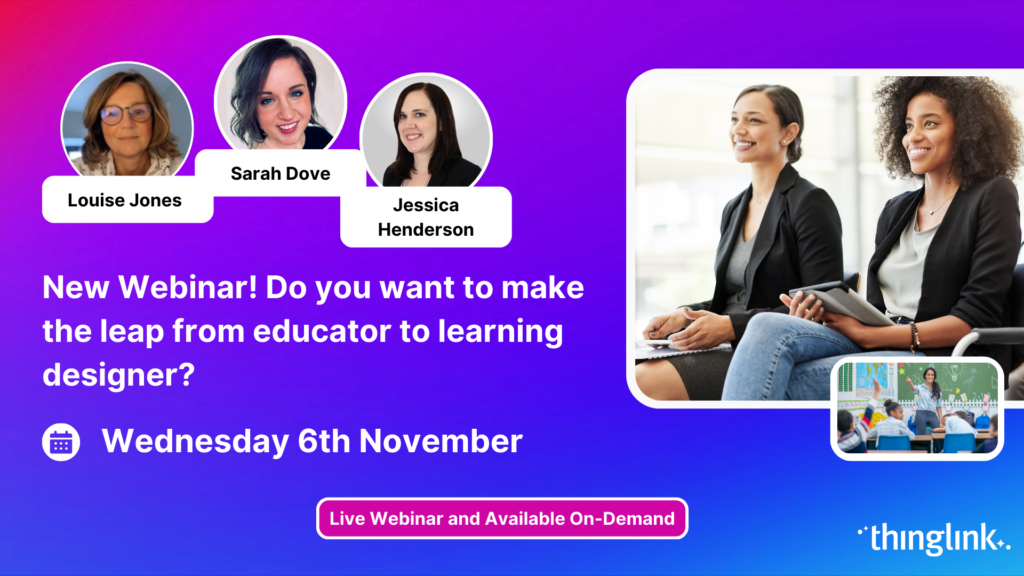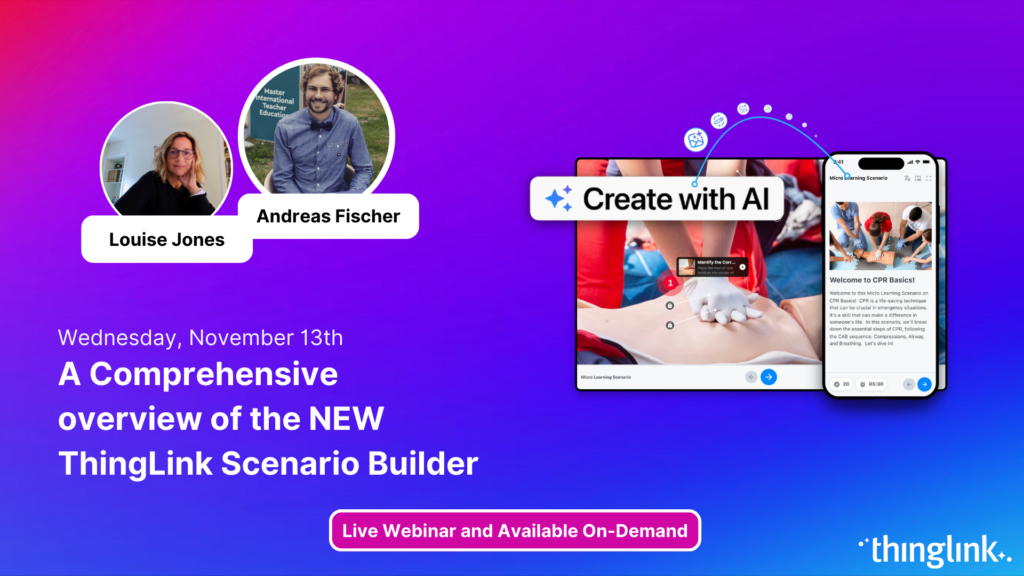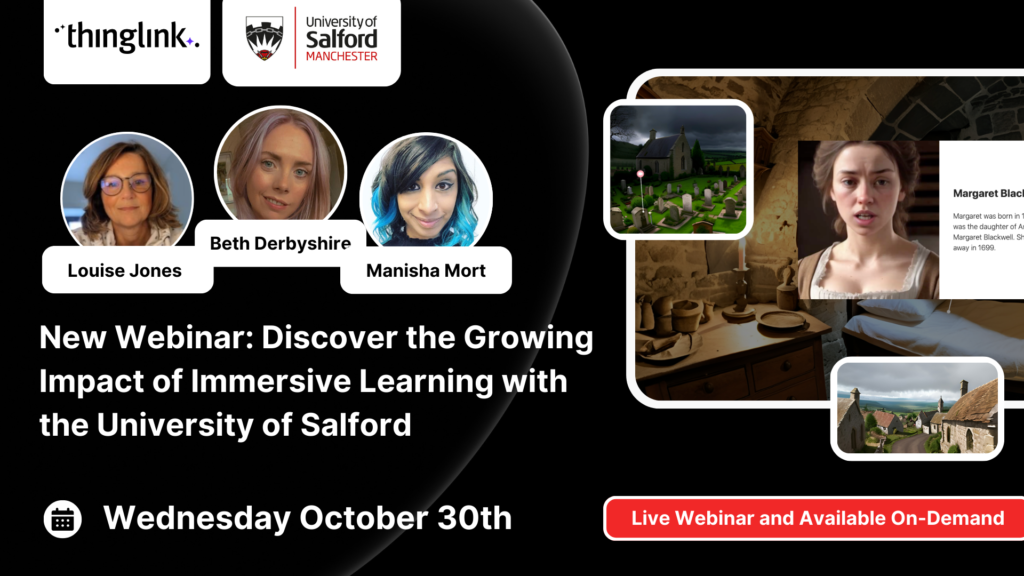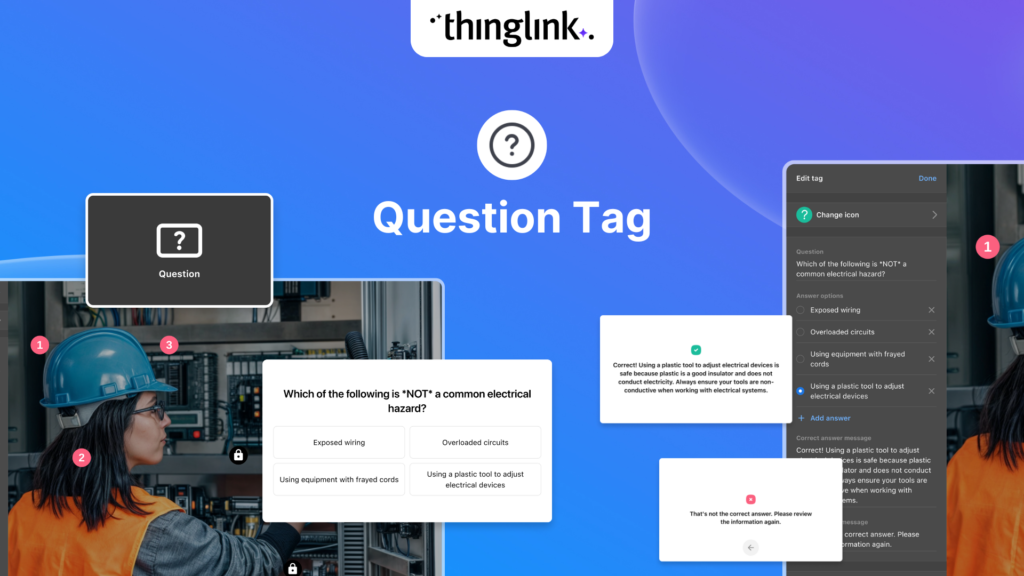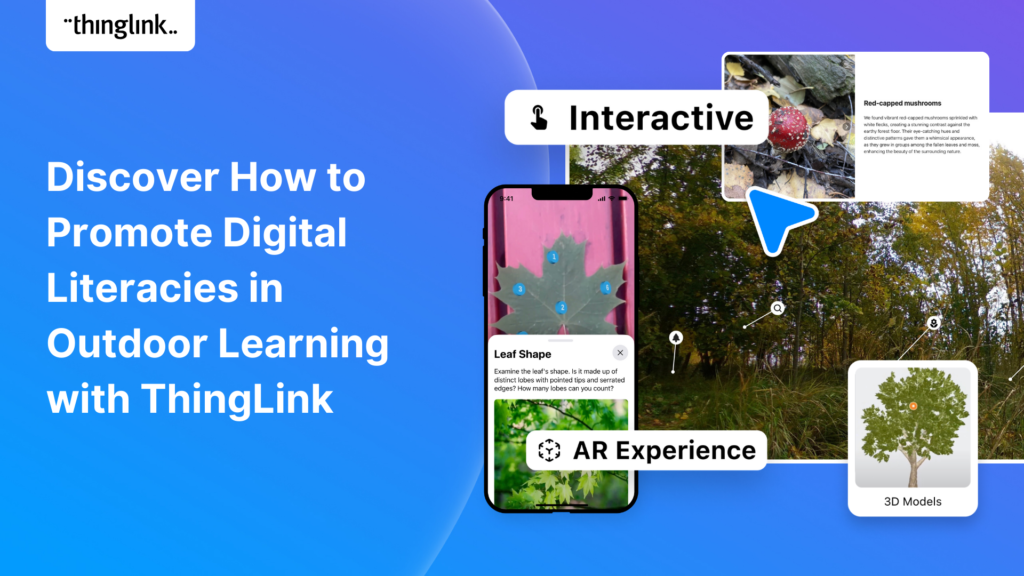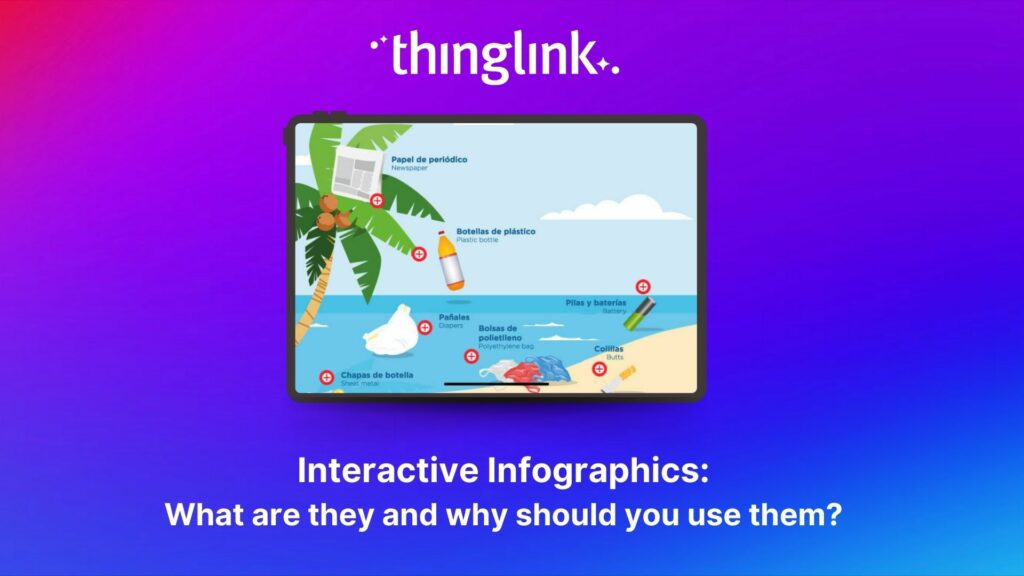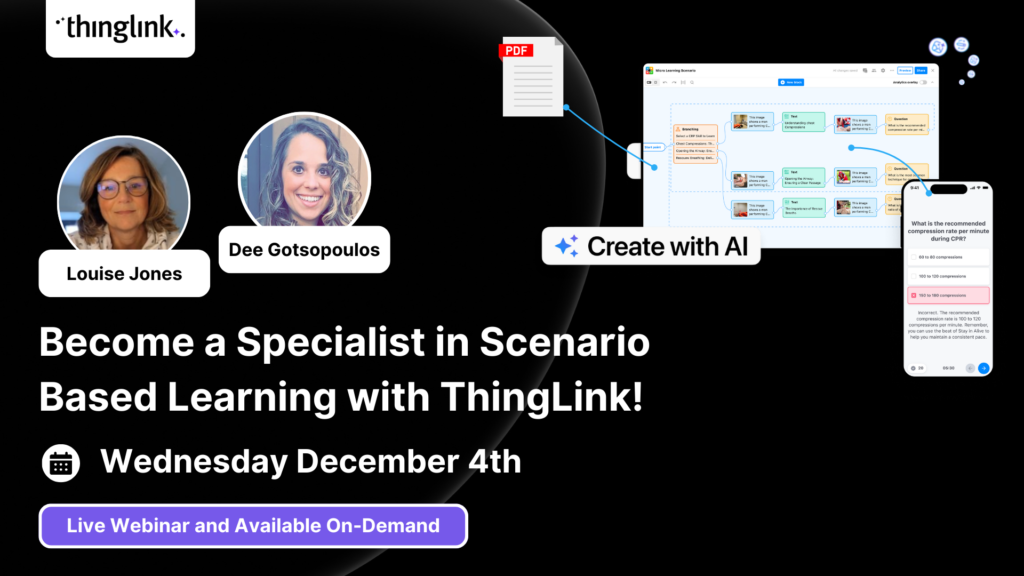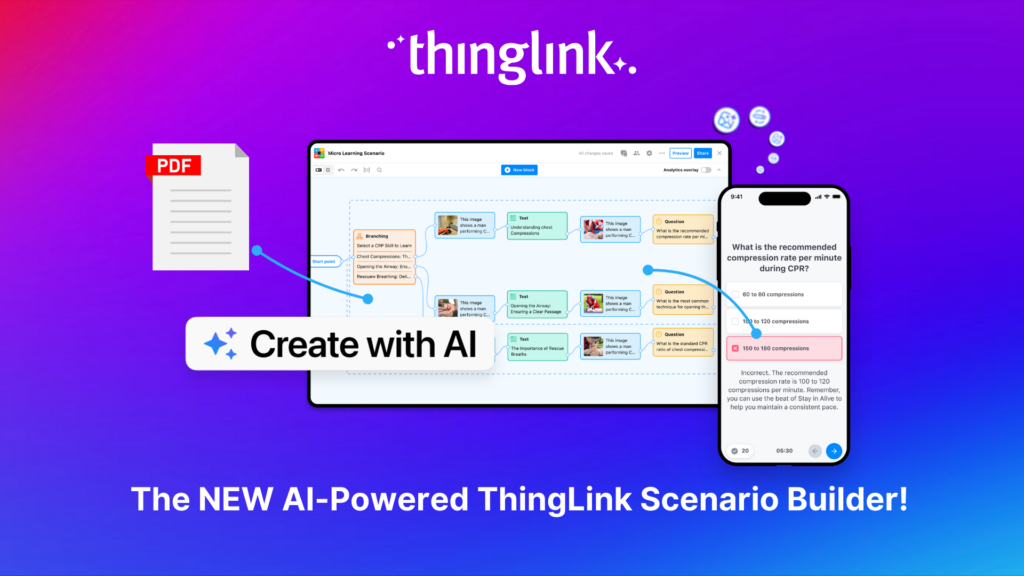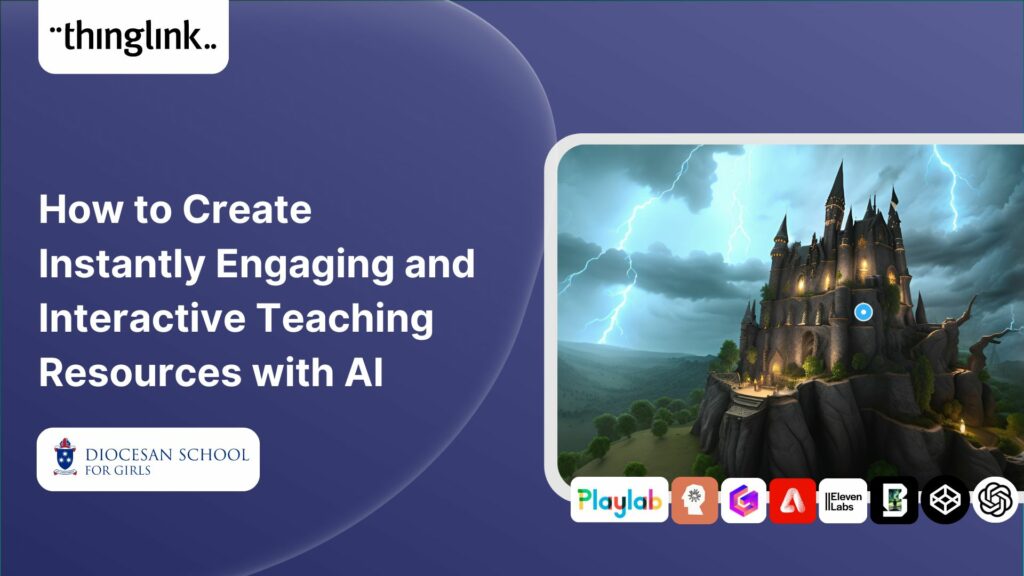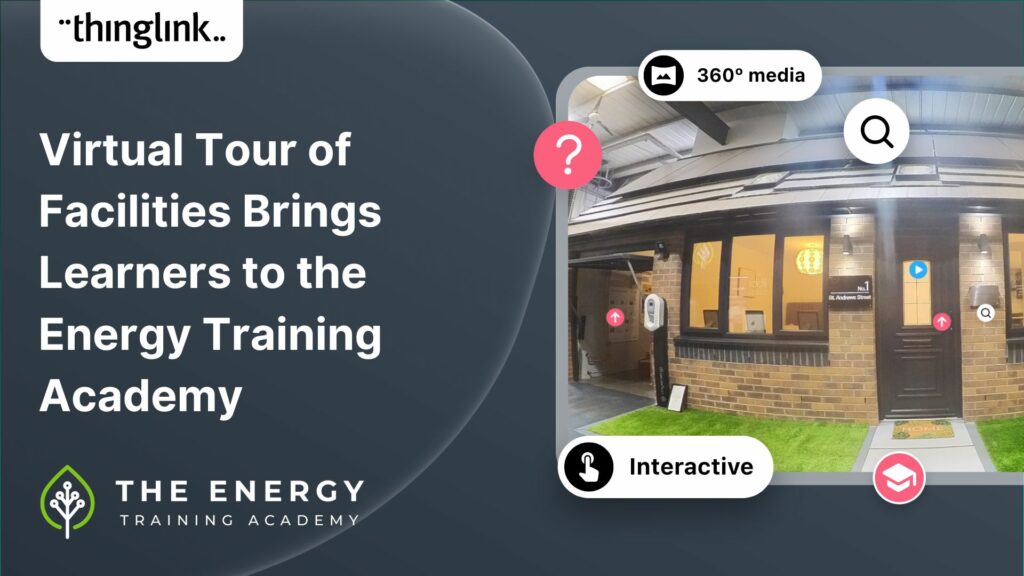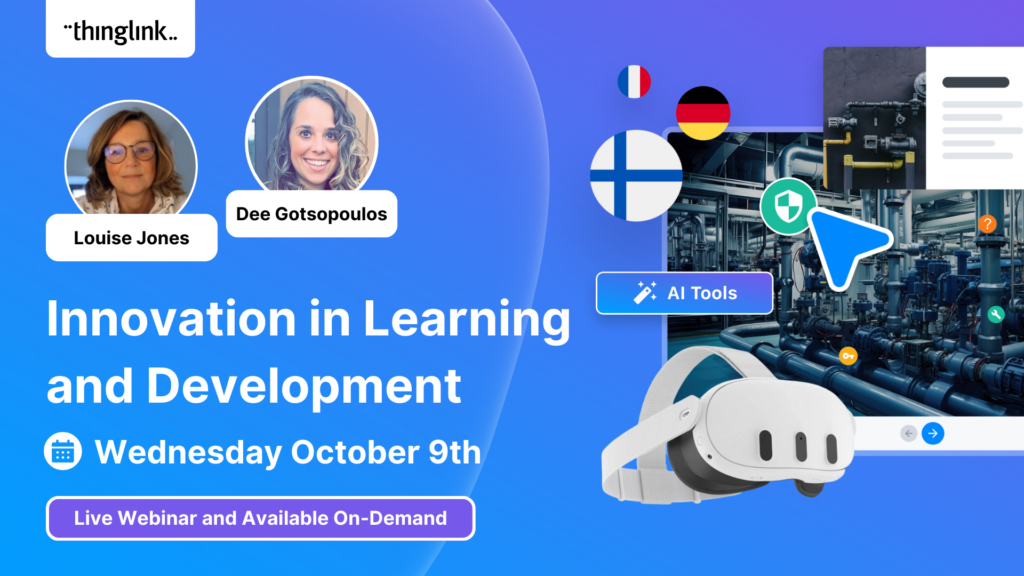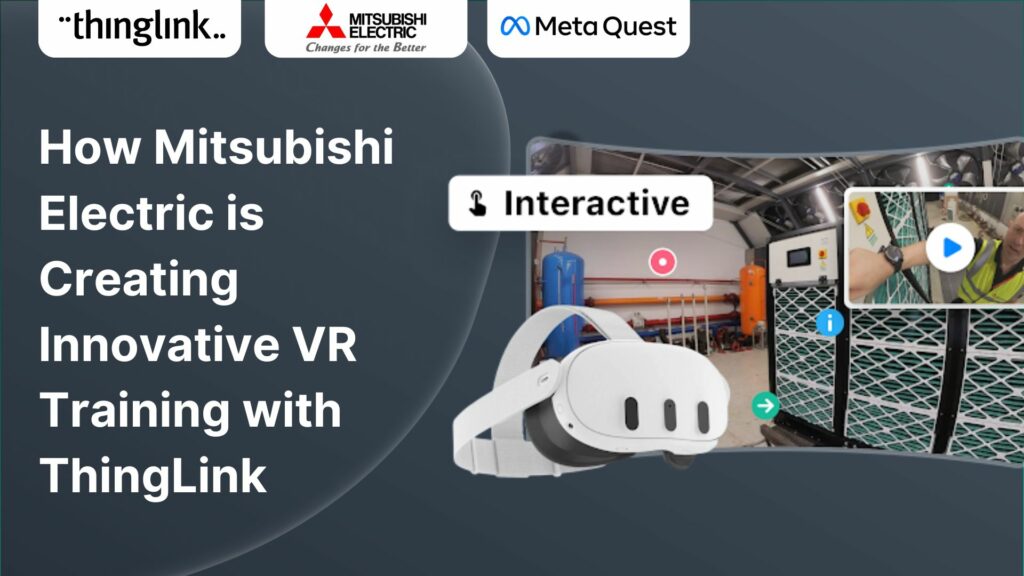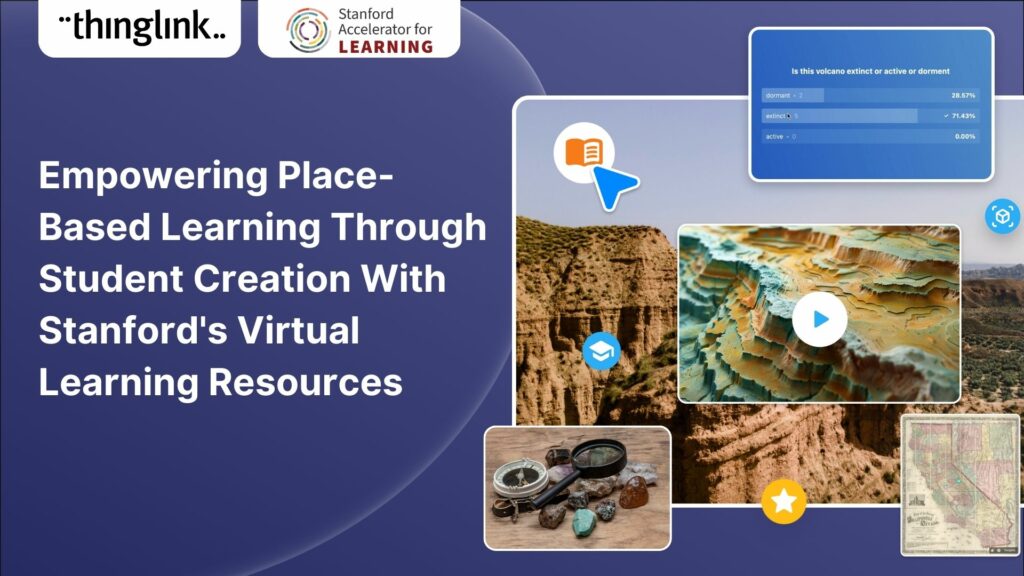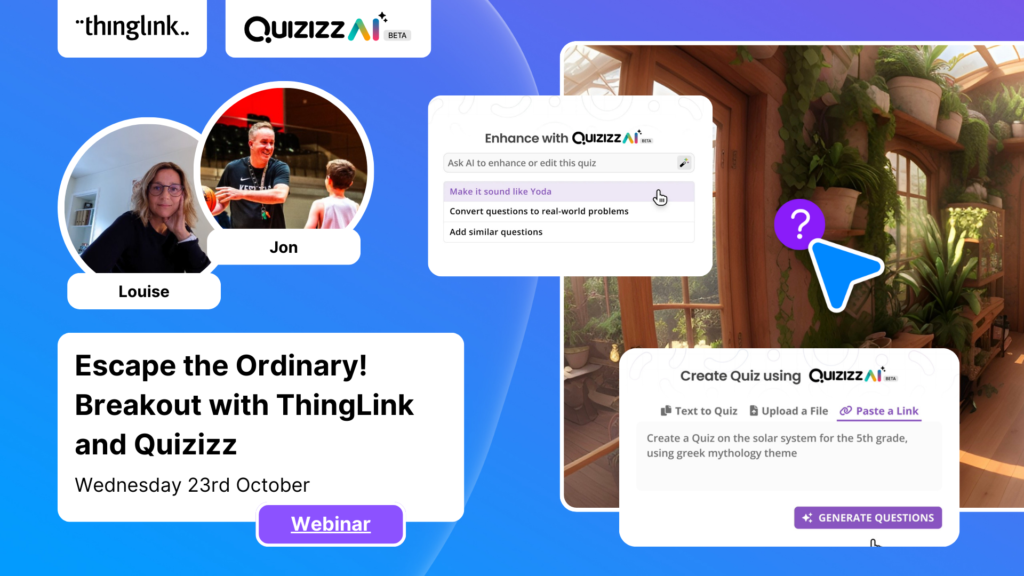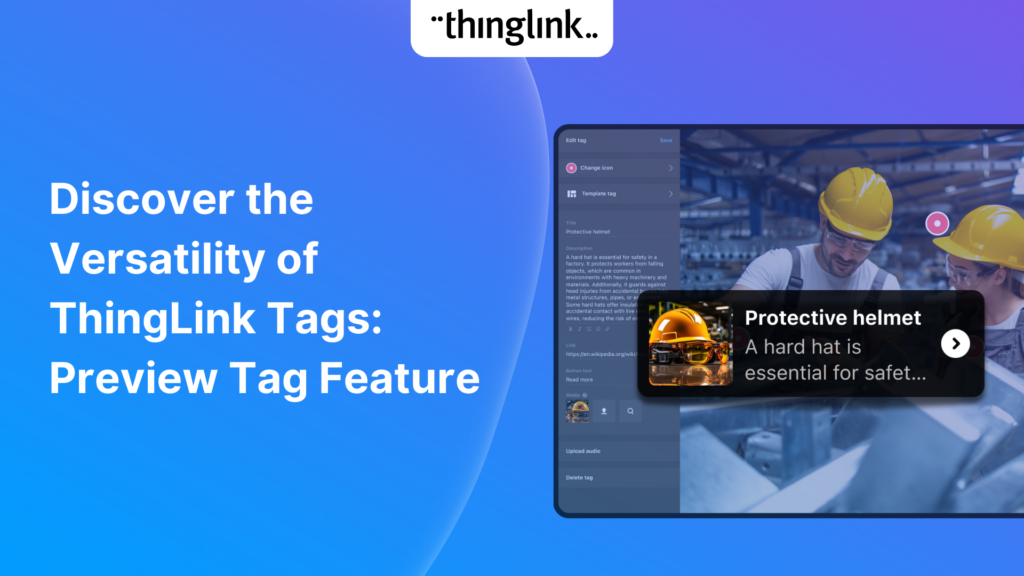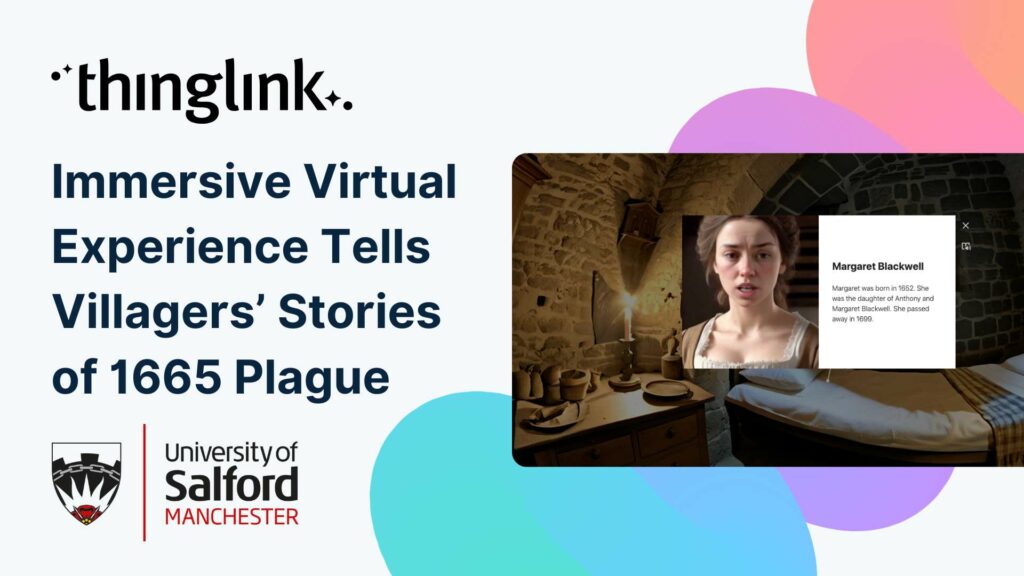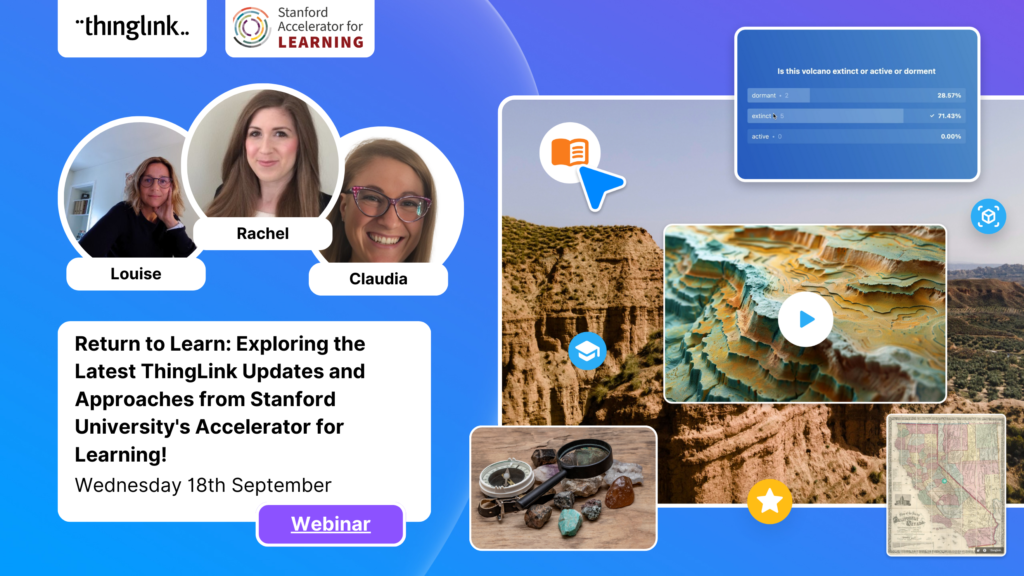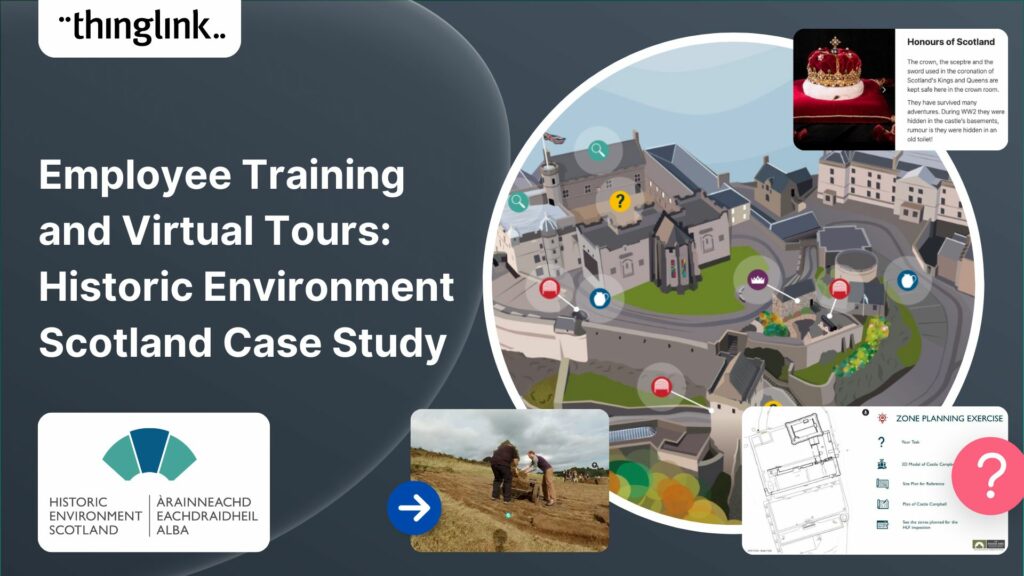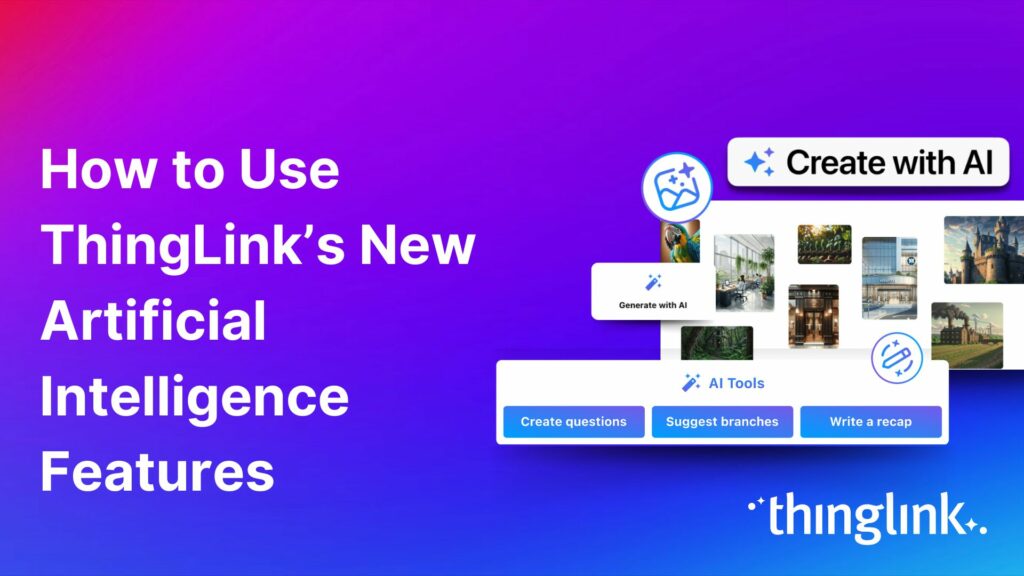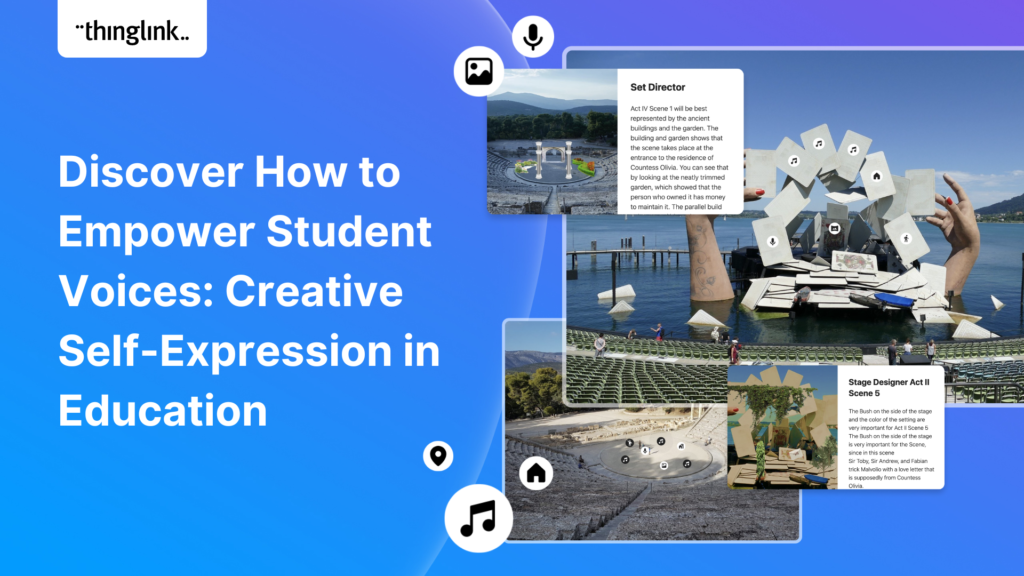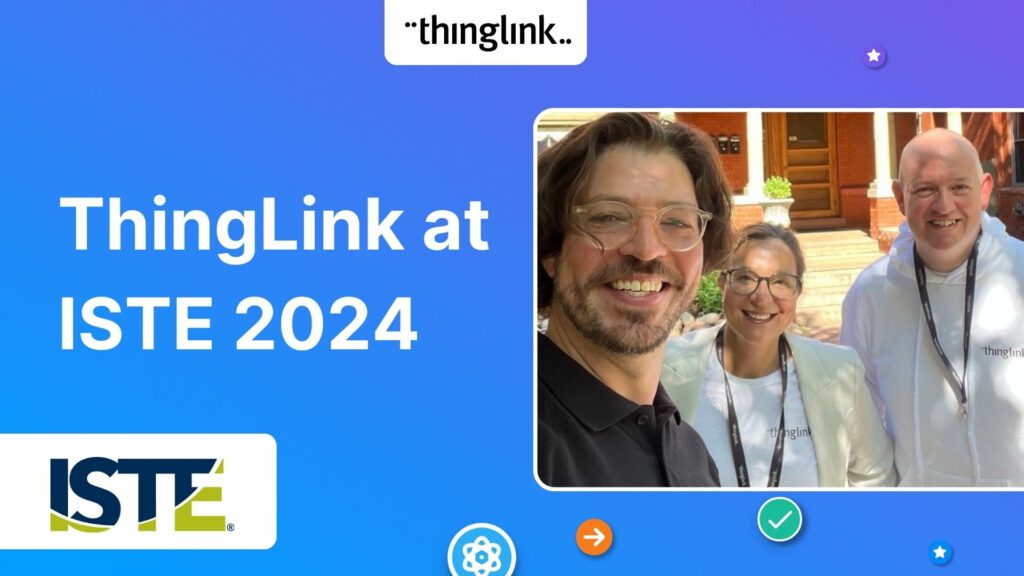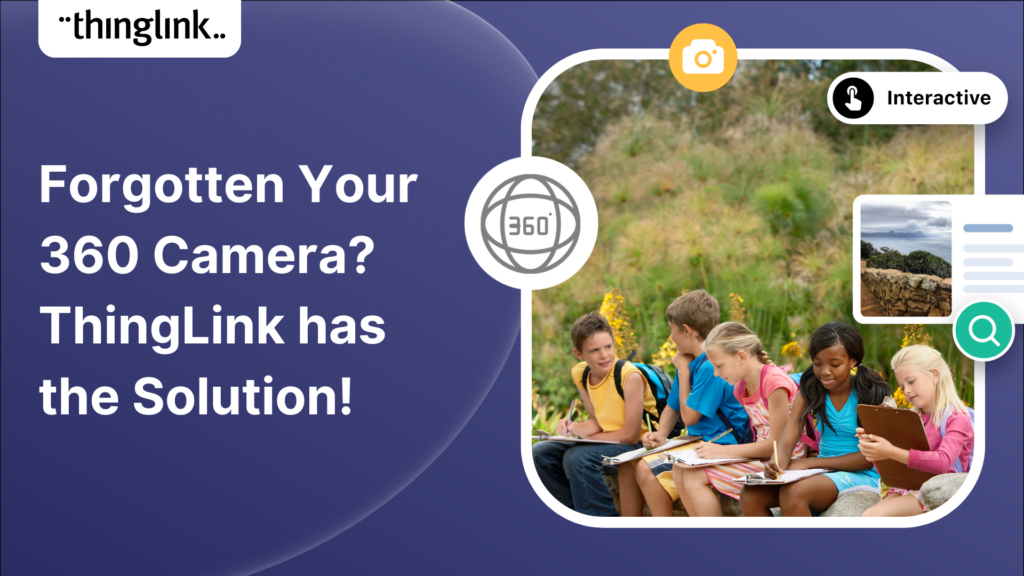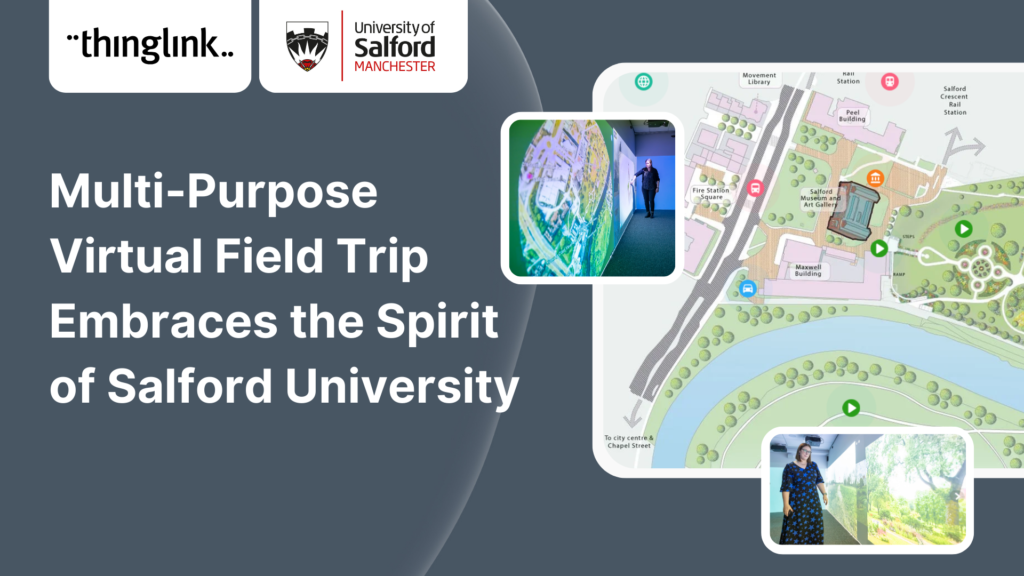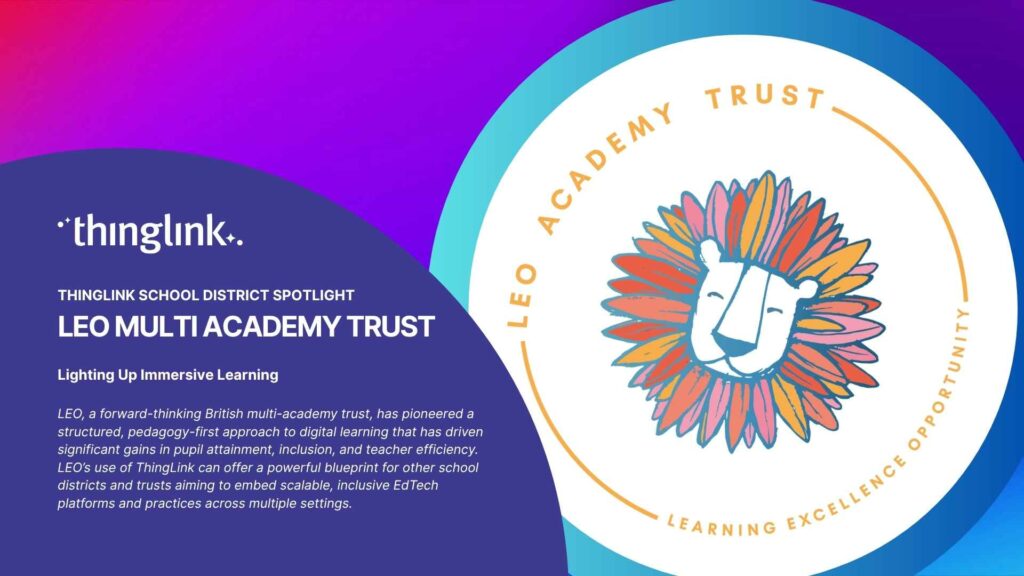
ThingLink School District Spotlight: LEO Multi Academy Trust
LEO, a forward-thinking British multi-academy trust, has pioneered a structured, pedagogy-first approach to digital learning that has driven significant gains in pupil attainment, inclusion, and teacher efficiency. One example of this successful approach in action is their use of ThingLink, supporting immersive, inclusive, and autonomous learning experiences for their pupils. We take a look at how LEO’s use of ThingLink can offer a powerful blueprint for other school districts and trusts aiming to embed scalable, inclusive EdTech platforms and practices across multiple settings.
Book a free consultation
If you’d like to learn more about creating engaging, impactful and immersive learning experiences with ThingLink across your school district or trust, schedule a free call with our Education Specialist.
What is LEO Multi Academy Trust?
LEO Academy Trust is a group of primary (elementary) schools in the London Borough of Sutton and Surrey. It serves over 5500 pupils across 11 schools, with 650 staff members.
In 2019, LEO began a digital transformation journey, dedicating substantial time, resources, and effort to implementing and developing a digital approach to pedagogy and progression. In 2021 they were made a Department for Education Demonstrator School for their exemplary use of technology.
In 2023, LEO Academy Trust commissioned a research project into their approach. The research was led by Dr Fiona Aubrey-Smith, an independent research consultant, and supported by a team of 16 school leadership researchers. The resulting report, “Changing Learning, Changing Lives – What Happens When Edtech Becomes Pedtech?” was published in December 2023 and highlighted the differences between the outcomes across the LEO MAT and other comparable schools locally and nationally. A follow up report was published in January 2025, “Changing Learning, Changing Lives: The Next Chapter”.
LEO schools now regularly host visitors who are looking to learn from them and emulate their successes in attendance, attainment and progress in learning. These ‘Discovery Days’ offer schools, teachers, leaders, policymakers, and researchers the opportunity to visit LEO schools, and gain deeper insight into the key elements driving LEO’s success. Each LEO school takes a turn to host, showcasing the trust-wide implementation of the pedagogy-first approach to digital learning.
Discover How to Deploy Immersive Learning at Scale: Watch Webinar Live or on Replay
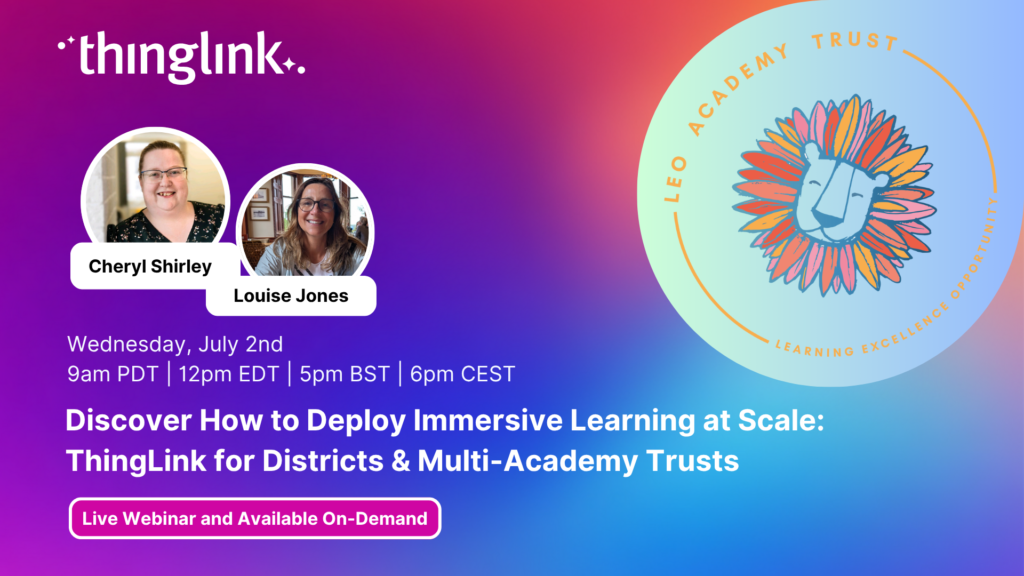
A Structured, Pedagogy-First Approach to Digital Learning
75% of staff across the LEO Trust are certified in digital skills, which in itself allows LEO to apply its “Digital Progression Framework” at all stages. This is a framework designed to improve digital fluency and support consistent academic progress, and sets out core skills for each year group, term by term. LEO pupils build up digital skills cumulatively so that they can benefit from digitally enhanced learning and teaching in Key Stage 1 (age 5-7) and Key Stage 2 (age 7-11).
Children at LEO in the Early Years Foundation Stage (age 4-5), start with on-demand access to a Chrome tablet in every classroom. A personal Chromebook is then provided for every KS1 and KS2 pupil and every member of the teaching staff. 1:1 device provision – for both children and adults – has since become a core and embedded part of the LEO offer. Pupils are also given age-appropriate digital toolkits through a systematic introduction of Chromebook tools and features. Digital Skills Passports and, more recently, an AI Skills Curriculum are additional parts of the digital toolkit in each LEO school.
Young Leaders
The progression model also provides pupils with an innovative, adapted version of the Professional Development provided to staff and leaders.
One application of this approach is the appointment and support of class-based young leaders. 2-3 children in each classroom apply for the junior leadership position, which changes each year, in order to build capacity over time. These children receive high quality training, adapted from the staff PD, on the small number of tools in active classroom use – elevating their skills as well as their confidence and self-esteem.
This training ensures that every classroom has a small group of students who are equipped to troubleshoot, support or innovate with digital tools to support their fellow pupils. This builds vital capacity and confidence into every classroom. Teachers have more time to devote to teaching responsibilities, whilst pupils are able to take on leadership responsibilities and gain experience in supporting and mentoring others, as well as developing their own digital skills and the skills of other pupils.
What Is the Evidence that LEO’s Approach Works?
The original PedTech report of December 2023 established a number of results and outcomes that have emerged at LEO since 2019. It attributes these benefits to:
“A fusion of visionary leadership, strategic thinking, operational planning, daily delivery, partner relationships and community mindedness…[None] of these outcomes [are] attributable to one single act, intervention, person or project. However the range and scale of these findings could not have been achieved without LEO’s deep integration and embedding of digital technology.”
PedTech Impact Report Executive Summary p3
Some of these include:
- The attainment of children at LEO schools significantly outperforms national norms in national tests, with the gap between national averages and LEO widening each year (rising from 14-23% over the last 3 years).
- The proportion of children achieving greater depth in national assessments in reading, writing and maths at LEO was more than triple the national average over the last 3 years, with the outperformance between LEO and national figures widening each year.
- The number of children on the SEN register requiring expensive intervention programmes has reduced by around a third at LEO.
- Attendance figures across LEO are higher than the national average, and net mobility at LEO just 4% compared to an average of 20-48% across other London schools.
- Teacher capacity repurposed as a result of moving from paper-based to digital tasks equates to 11 full time members of staff across the MAT.
- Digital tasks increase classroom efficiency by 23%, allowing the repurposing of time for more targeted and inclusive learning – leading to the significant attainment gains outlined above.
- The reduction in worksheet printing and number of exercise books saves approximately 400 trees per year with a trust wide saving of around £78 per child per year (just over half the cost of the Chromebook provision).
- Nearly 15,000 digital badges have been achieved by LEO children, and nearly 75% of staff have certified digital skills – comparable with a MATs 8-10 times the size of LEO.
- Staff satisfaction is consistently 15-20% above national benchmarks with LEO seen as an employer of choice – leading to exceptionally high levels of staff retention (through internal professional growth), high quality candidate appointments, and significant advertisement and recruitment cost savings.
- A consistent and sustainable increase in number on roll with LEO schools being targeted as the school of choice by families.
The graph below from p123 of the PedTech Impact Report compares LEO with national attainment averages over the years 2015-2023:
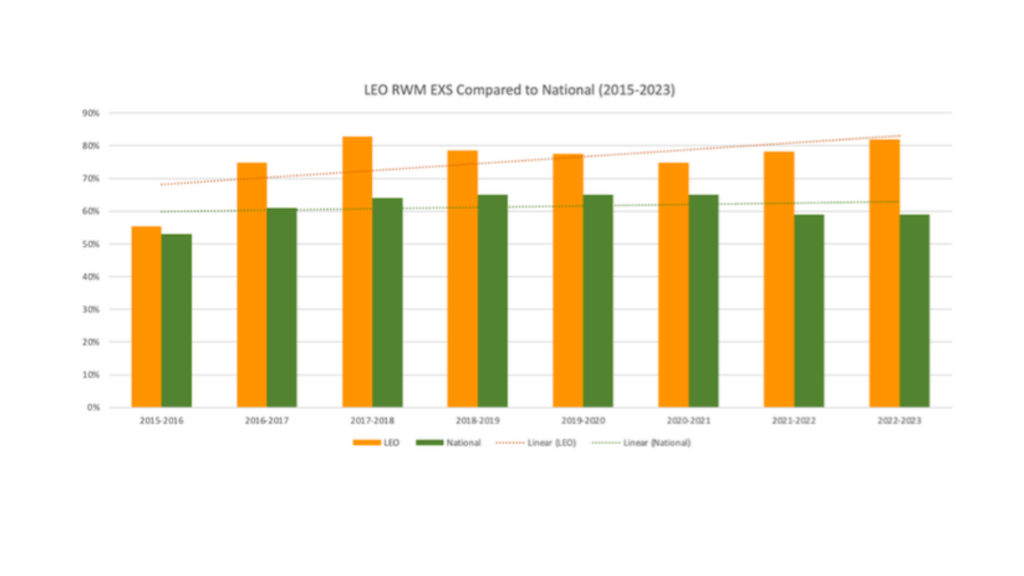
How Does ThingLink Fit Into LEO’s Approach to PedTech?
Staged, Strategic and Cumulative Approach to Digital Skills with Clear Onboarding, Training and Implementation
LEO’s “Digital Progression Framework” – its cumulative, strategic and staged approach to learning digital skills – is key to the success of their digital development, and this extends to its use of ThingLink.
ThingLink is ideal for learners to build progressive skills, as it relies on a consistent and intuitive interface and creation flow. For example, in Year 1, LEO pupils are expected to have mastered a number of key skills, such as logging into their Chromebooks independently. One of these skills is:
“Use VR to explore an interactive 360 image (e.g. NearPod, Google Arts and Culture, Google Earth and ThingLink)”.
PedTech Impact Report p46
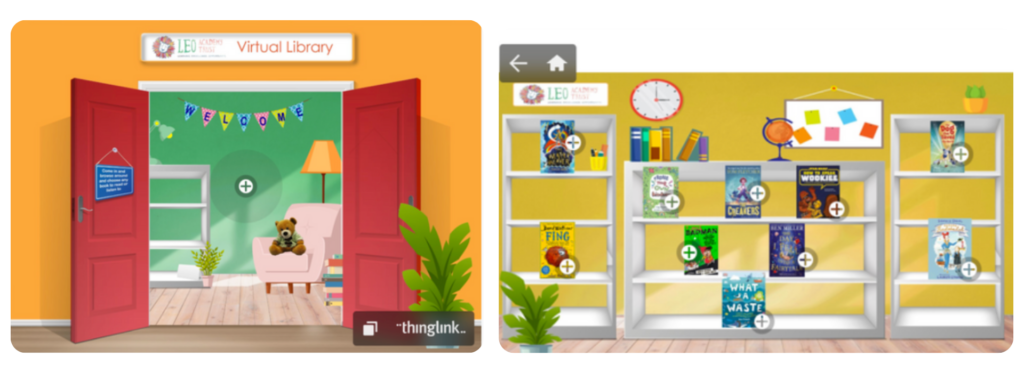
Above: Two examples of virtual library ThingLinks designed for KS1 pupils (age 5-7), illustrated in the PedTech Impact Report.
ThingLink is also used throughout LEO to provide a reassuringly consistent method of illustrating examples and best practice to the pupils. The PedTech report highlighted why ThingLink was such an essential tool in the LEO ecosystem and how it supported the very gradual and carefully structured approach to developing key digital skills:
“As one way of purposefully planning for children to be autonomous, teachers regularly use ThingLink to provide structured access to lesson materials.”
PedTech Impact Report p93
As well as providing a way of amalgamating a large amount of instructions and information for the pupils in one place, it also provides diverse multimedia and multimodal ways for the pupils to access the information, depending on their preference. As such it develops learner confidence and autonomy.
“Individual, independent access to success criteria and WAGOLLS (Examples of ‘What A Good One Looks Like), were commonplace across LEO classrooms. Often these were provided through ThingLink…[and] usually included the lesson success criteria, a WAGOLL, word banks, vocabulary lists, audio or video clips (either of the stimulus or examples), and often different choices of scaffolds that children could then autonomously choose to use.”
PedTech Impact Report p71
ThingLink Empowers LEO Teachers to Meet the Specific Needs of Their Learners with Easy Creation of Inclusive Materials
ThingLink cuts down on teacher preparation time by providing a scaffolded and variable range of learning content in one place. Its built-in accessibility tools like Microsoft Immersive Reader make it possible for a teacher to share just one piece of content that could be accessed by pupils with a wide range of reading and learning abilities, instead of having to recreate the materials in a number of different formats and levels.
“ThingLink was used as a regular means of providing children with a ‘one stop shop’ for different scaffolds to support their independent learning activities.”
PedTech Impact Report p72
“The teacher therefore was able to focus on creating one high quality text that all children can access rather than the production of multiple texts and potential reduction in expectations.”
PedTech Impact Report p84
Teachers highlighted that
“I don’t have to make 3 totally different versions of WAGOLLs like we used to – we now have 1 WAGOLL but because it’s on ThingLink the children can pick out specific parts at a time – broken down into smaller chunks so that it’s more accessible to them”.
PedTech Impact Report p72
“Teachers spoke unanimously about the useful and very visual way in which ThingLink provided access for children.”
PedTech Impact Report p71
“We can use ThingLink to place multiple resources for the children to … pick and choose the resource which is most appropriate for them, at their own particular level. This is fantastic for inclusion as the resources are available for all; no child will feel excluded through differentiation – the children take ownership for their learning.”
PedTech Impact Report p72
This approach is illustrated by two images taken from the PedTech Impact Report below, with different variations of scaffolding support available in the same ThingLink.
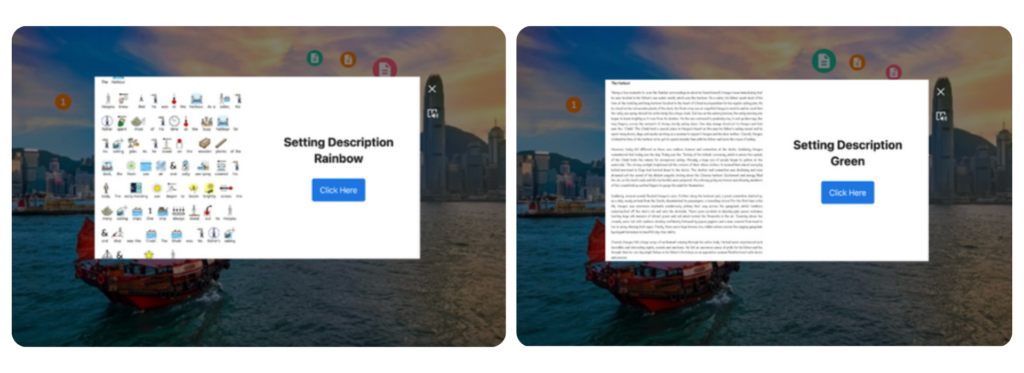
The LEO pupils themselves value the sense of independence and inclusion that the ThingLink materials provide. The report highlighted one Year 6 pupil response which highlights this:
“I like that I can choose which scaffold to use. Sometimes I don’t want [peer name] to see if I need extra help so this means I can just look up what I need and like, only [teacher name] knows”
PedTech Impact Report p72
“Children were provided with a high-quality WAGOLL that could be accessed by every child as a result of the assistive technology that Thinglink facilitates….children were able to have the text read to them and could turn on the word class toggles to enable them to see colour codes for different word classes. Furthermore, the children were able to access a dictionary providing definitions of all vocabulary used. As a consequence, all children were able to access a rich text that meets the expected standard and writing requirements for their age group.”
PedTech Impact Report p84
ThingLink Co-Creation via an Organizational Plan Helps Increase Class and School Efficiency at LEO
The PedTech Impact Report highlighted that one of the key benefits of LEO’s transition to digital learning has been the opportunities for staff to work together more effectively.
“Teachers plan collaboratively in year group teams across the partnership of schools. This allows them to:
PedTech Impact Report p169
– Provide a space for rich, professional dialogue to ensure the best possible outcomes and opportunities for all children in the partnership
– Share ideas and expertise
– Evaluate the week’s learning
– Use their assessment to plan the content and delivery of the curriculum
– Plan enrichment opportunities (experiences, trips and visitors)
– Delegate tasks which eases workload.”
As well as cutting down on individual teacher creation time, the ability to co-create and share ThingLink materials across the LEO Trust schools reduces duplication and workload even further. This is made possible by the fact that LEO have an organizational ThingLink plan, with staff able to share content across folders. Sharing resources this way makes it easier to roll out any learning tools across multiple schools or academies.
“ThingLink is a simple tool which provides one central image (e.g. a text, picture, map, diagram), that can have ‘hotspots’ on it which link off to other materials (e.g. documents, audio, films, websites). Teachers work together as year group teams to create these resource banks for specific lessons, with each teacher contributing specific aspects (e.g. scaffolds, writing frames, wordbanks, extension support for children already working at greater depth).”
PedTech Impact Report p93
This is just one example of a collaborative approach to teacher development that is mirrored in pupil development.
“Observations regularly surfaced of children working together on production tasks. For example, children being given a shared stimulus (often a video or image on ThingLink…) then each child or pair of children exploring one element of that stimulus in detail using signposted appropriate resources (provided via Google Classroom assignments or ThingLink), and then contributing their findings back into a shared artefact”.
PedTech Impact Report p140
Watch our Webinar with PedTech Impact Report author Dr Fiona Aubrey-Smith
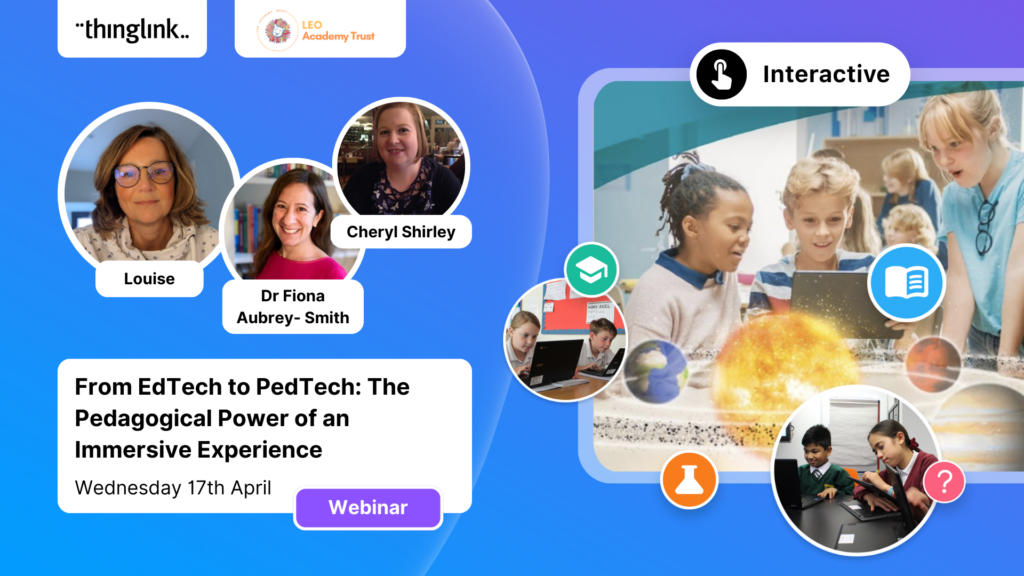
A Scaleable Model that Can be Replicated in Any School District or MAT
The 2025 follow up report identified:
“8 key levers for scalable and sustainable impact that have been put into place by LEO.”
These are:
- Appointing and supporting a full-time executive leader of digital
- Embedding matrix trust leadership of digital.
- Appointed and supported school based champions.
- Appointing and supporting class based young leaders
- A small, but strategically chosen, digital package – based around one shared ecosystem (Google), 1:1 Chromebooks available on-demand for all children, leaders, teachers, and teaching assistants, with core teaching tools and core learning tools.
- Ongoing research, evaluation and sharing
- Enabling Learning as a cultural mindset
- Solution oriented long term financial planning.
The report found that these key levers were likely to be “transferable to other groups of schools who are similarly committed to this high- impact, contemporary form of educational provision.” (PedTech in Practice: The Next Chapter p.35)
Strategic and Research-Informed Use of PedTech
LEO Academy Trust’s strategic and research-informed use of PedTech and of ThingLink exemplifies how immersive technology can be thoughtfully embedded to enhance teaching, learning, and inclusion across a multi-academy trust or school district . By aligning ThingLink with their pedagogy-first vision and Digital Progression Framework, LEO has created a scalable model that empowers staff, elevates pupil autonomy, and drives measurable outcomes.
For school district leaders and MATs seeking sustainable, high-impact digital transformation, LEO’s approach offers clear evidence of how tools like ThingLink can become powerful enablers of innovation, equity and excellence in education.
Book a free consultation
If you’d like to learn more about creating engaging, impactful and immersive learning experiences with ThingLink across your school district or trust, schedule a free call with our Education Specialist.
